Rechercher dans ce blog
Wednesday, October 31, 2018
White House Adviser: More US Tariffs on China Goods Not 'Set in Stone'
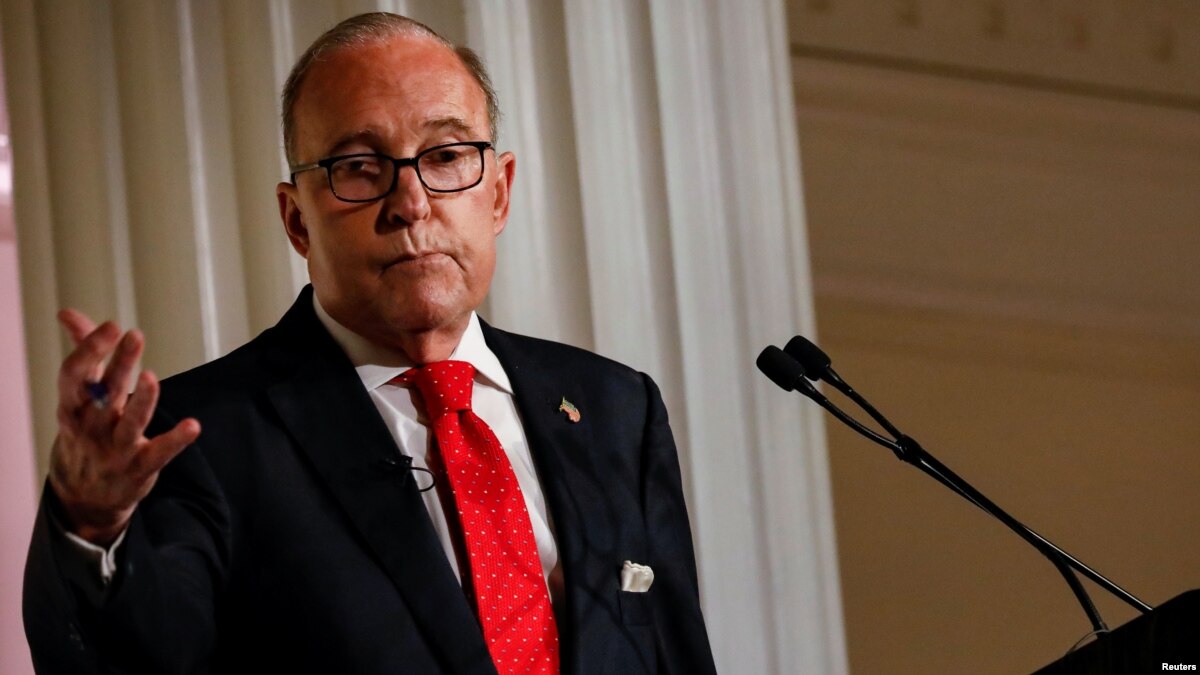
U.S. President Donald Trump has not "set in stone" any decisions on escalating tariffs on Chinese goods and may withdraw some duties if there are promising policy discussions with China, White House economic adviser Larry Kudlow said on Wednesday.
Kudlow said on CNBC that the meeting agenda between Trump and Chinese President Xi Jinping at the end of November in Buenos Aires has not yet been worked out, but "we may have a very good meeting in Argentina with President Xi.”
Asked about whether Trump would proceed with tariffs if the meeting fails to ease trade tensions, Kudlow said: "I would say nothing is set in stone right now. By the way, the president on one of the cable shows, did say - it didn’t get picked up - that if some kind of amicable deal with China were to happen, then a lot of tariffs might be pulled back."
Kudlow, who heads the White House's National Economic Council, added that Trump wasn't making a promise, but giving a "very important hypothetical.”
Bloomberg reported on Monday that the Trump administration was preparing to announce tariffs on the remaining Chinese imports, about $257 billion worth, if the meeting fails to ease the U.S.-China trade war, citing unnamed sources.
Trump has long threatened to impose tariffs on all $500 billion-plus goods imports from China if Beijing fails to meet his demands for sweeping changes to its policies on intellectual property, technology transfers, industrial subsidies and local market access.
Kudlow said there was no specific trigger point for a decision to impose more tariffs on Chinese goods. "The policy talks determine this, not an arbitrary timetable. If the policy talks go well, then we'll have a much better situation. If the policy talks don't, it may deteriorate," Kudlow said.
He said Trump said in a recent interview that if there are "promising policy discussions, I don't know about a full fledged deal, but if things go well, maybe some tariffs get withdrawn and maybe not.”
Kudlow did not specify the interview to which he was referring.
In an interview on Fox News Channel's "The Ingraham Angle" show on Monday, Trump did not specifically mention the potential withdrawal of tariffs, but said he expects "a great deal" with China.
Japan Returns to Work at Disputed Site for US Base

Japan’s central government has resumed work at a disputed U.S. military base relocation site on the southern island of Okinawa despite local opposition.
The Defense Ministry’s local branch said an early stage of landfill work at Henoko on Okinawa’s east coast began Thursday morning.
The Henoko site is the replacement for a U.S. Marine Corps air station in a more populated area.
Okinawans say the presence of so many U.S. troops on the tiny island is burdensome and they want the base off the island entirely.
Defense Ministry officials said the resumption of work at Henoko followed the central government’s decision earlier this week to reverse Okinawa’s earlier ban on a landfill work at the site.
About half of the 50,000 American troops in Japan are stationed on Okinawa.
S. Korea's Moon: N. Korean Leader Kim to Visit Seoul 'Soon'

South Korean President Moon Jae-in says North Korean leader Kim Jong Un will "soon'' visit Seoul.
Moon didn't provide any other details about the trip during a speech on the economy given before the parliament Thursday.
Moon has previously said that Kim told him he would visit Seoul within this year when the leaders met in Pyongyang in September.
It wasn't immediately clear whether Moon was repeating his previous statement or if he had new details about Kim's trip.
Moon also says a second North Korea-U.S. summit is "near at hand.'' He says Chinese President Xi Jinping is expected to visit North Korea and that Kim is to travel to Russia soon.
Moon has shuttled between North Korea and the United States to arrange nuclear talks.
Pompeo: US Trying to Persuade China to Act ‘Like Normal Nation’
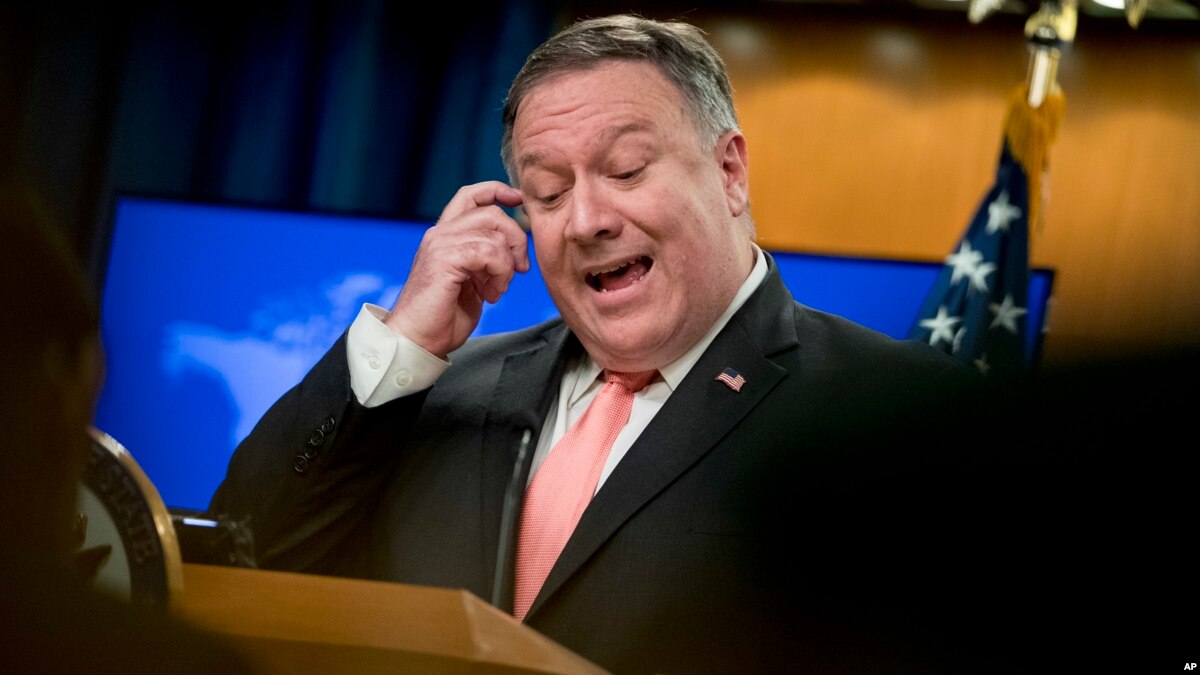
U.S. Secretary of State Mike Pompeo said Wednesday the United States was engaged in a “multipronged effort ... to convince China to behave like a normal nation on commerce” and respect international law after Washington indicted 10 Chinese nationals in the stealing aviation secrets.
Speaking in a radio interview, Pompeo called China’s behavior in stealing intellectual property “inappropriate” and “not consistent with being a superpower or a leader in the world.”
“Stealing another country’s intellectual property, something China’s been engaged in to the tune of hundreds of billions of dollars, is just something China has to figure out a way to stop,” he told the Brian Kilmeade Show.
Biggest national security challenge
Pompeo also told the Laura Ingraham radio show that over the long term, China was probably the biggest national security challenge facing the United States and the Trump administration was pushing back “on all fronts.”
“Where the semiconductor piece fits in is it’s part of a mosaic of our strategic effort to push back against this continued Chinese effort,” he said.
“It is a multipronged effort on behalf of all of the United States government, at the president’s direction, to convince China to behave like a normal nation on commerce and with respect to the rules of international law,” he said.
Turbo fan engine targeted
A U.S. indictment unsealed Tuesday said Chinese intelligence officers conspired with hackers and company insiders to break into computer systems of private firms to steal information on a turbo fan engine used in commercial jetliners.
It was the third major corporate espionage-related case involving Chinese intelligence officers brought by the Justice Department since last month and comes at a time when Washington is embroiled in a trade war with Beijing.
The United States and China have slapped tit-for-tat tariffs on hundreds of billions of dollars of each other’s goods over the past few months, sparked by U.S. President Donald Trump’s demands for an end to alleged Chinese intellectual property theft, deep cuts to industrial subsidies, and action to correct a major U.S. trade deficit with China.
Early this month, U.S. Vice President Mike Pence intensified Washington’s pressure campaign against Beijing by accusing China of malign efforts to undermine Trump ahead of next Tuesday’s congressional elections and reckless military actions in the disputed South China Sea, a major Asian trade route.
China has rejected the charges.
Diplomat Says Australia to Remove Child Refugees From Detention Centers

Australia will remove child refugees from its remote Pacific detention centers within weeks, a senior diplomat said, as Prime Minister Scott Morrison seeks to secure support for his government, which looks set to become a minority administration.
Canberra's hard-line immigration policy sees asylum seekers intercepted at sea trying to reach Australia sent for processing to camps in Papua New Guinea and on the South Pacific island of Nauru.
While aid agencies have called for the removal of the more than 1,000 refugees held for more than five years, Morrison is under immense pressure to resettle 40 children currently held on Nauru amid warnings they are suffering from declining mental health.
Detailing the first public timetable for the removal of the children, George Brandis, Australia's High Commissioner to Britain, said Canberra will remove the children, though he did specify where they would be moved to.
"There are hardly any children in Nauru and in New Guinea, and we expect that by the end of this year there'll be none," Brandis told British radio station LBC on Tuesday.
By resettling the child refugees, Morrison will meet a key demand from several independent lawmakers for supporting for his government.
Morrison's ruling Liberal Party is on course to lose its one-seat parliamentary majority as voters in a Sydney electorate look set to select an independent lawmaker to replace former prime minister Malcolm Turnbull.
Counting in the by-election continues, with independent Kerryn Phelps ahead of the Liberal Party candidate by nearly 1,800 votes, with just 2,000 ballots to be processed, the Australian Electoral Commission said.
Turnbull quit politics shortly after he was removed from the office of prime minister in August following a party revolt that installed Morrison as leader.
The loss of Turnbull's affluent Sydney constituency would leave Morrison's government dependent on the support of five independent lawmakers to pass legislation in the lower house of parliament.
Several independent lawmakers have said they may back no confidence motions that would trigger an early election unless the children held on Nauru were removed.
Report: North Korea Readies Nuclear, Missile Sites for International Inspectors
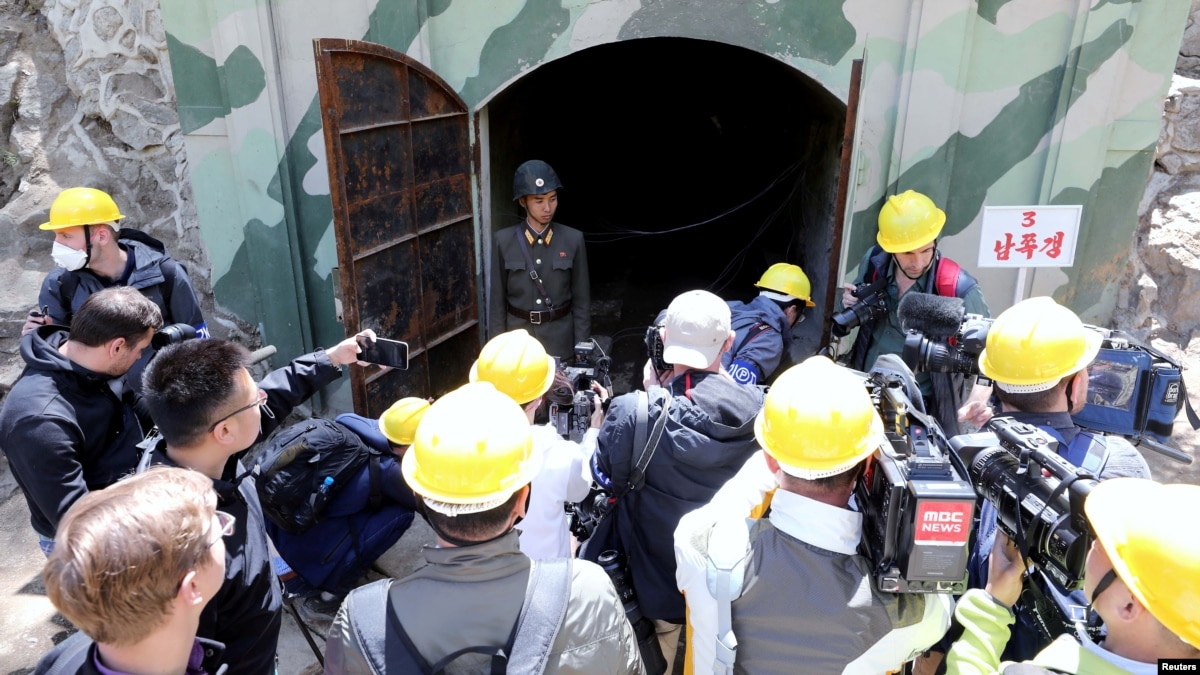
South Korea's spy agency has observed preparations by North Korea for international inspections at several of its nuclear and missile test sites, the Yonhap news agency said on Wednesday, citing a South Korean lawmaker.
Kim Min-ki of the ruling Democratic Party told reporters the South's National Intelligence Service observed North Koreans "conducting preparation and intelligence activities that seem to be in preparation for foreign inspectors’ visit" at Punggye-ri nuclear test site and the Sohae Satellite launching ground.
The lawmaker added no major movements were seen at Yongbyon, the North's main nuclear complex.
North Korea has stopped nuclear and missile tests in the past year, but it did not allow international inspections of its dismantling of Punggye-ri in May, drawing criticism that the action was merely for show and could be reversed.
In September, its leader, Kim Jong Un, also pledged at a summit with South Korean President Moon Jae-in to close Sohae and allow experts to observe the dismantling of the missile engine testing site and a launch pad.
At the time, Moon said North Korea agreed to let international inspectors observe a "permanent dismantlement" of key missile facilities, and take further steps, such as closing Yongbyon, in return for reciprocal moves by the United States.
The U.S. State Department and Pentagon did not immediately respond to a request for comment.
Washington has demanded steps such as a full disclosure of the North’s nuclear and missile facilities, before agreeing to Pyongyang’s key goals.
American officials have been skeptical of Kim's commitment to giving up nuclear weapons, but the North’s pledge at the summit with the South drew an enthusiastic response from President Donald Trump.
In Washington, South Korean Defense Minister Jeong Kyeong-doo said the United States and South Korea would make a decision by December on major joint military exercises for 2019.
Earlier this month, the two countries suspended Vigilant Ace, one of several exercises that have been halted to encourage dialogue.
"We are not right now concerned with a loss of combat capability," U.S. Defense Secretary Jim Mattis told reporters after the meeting with his South Korean counterpart.
"Clearly as we go forward, we'll have to make adaptations to ensure we don't lose that capability. But right now, again this is not a total suspension of all collaboration and military exercises," Mattis added.
China Picks Philippine Port to Extend Belt & Road Into South Seas

China is exploring ways to build new infrastructure in a second-tier Philippine port city as a link in its Belt-and-Road Initiative for expanding Chinese trade in Southeast Asia and the South Pacific.
Chinese Foreign Minister Wang Yi visited the Philippine port of Davao City Monday to talk for an hour with the host country’s President Rodrigo Duterte, according to the Philippine presidential office website. Wang said Sino-Philippine economic cooperation can “expand to new areas, including projects of the Belt and Road Initiative,” China’s official Xinhua News Agency reported.
Filipinos have expected China to act on its October 2016 pledge of $24 billion in aid and investment. They worry especially because the Philippines had struggled to get along with Beijing due to a maritime sovereignty dispute.
A rehab of Davao’s deep-water but otherwise small, ramshackle port would increase business for the 1.6 million-person city that anchors a resource-rich but largely impoverished southern island. Chinese shippers could use Davao as an import-export base and call there along the way to countries further south.
“At the end of the day they’re saying that it’s beneficial for China to have improving trade with many of these countries and if you have better infrastructure, it will help trade both ways,” said Rajiv Biswas, Asia-Pacific chief economist with the research firm IHS Markit.
Belt, road and sea
China kicked off its Belt-and-Road initiative in 2013 to open trade foreign routes by investing in the infrastructure development of 100 other countries. The “scope” is expanding from initial recipient countries in continental Eurasia to regions including the South Pacific, Xinhua noted.
Davao City, which is on a gulf near the Philippines’ Pacific coast, would make sense as a place for Chinese to use for shipping minerals, said Christian de Guzman, vice president and senior credit officer with Moody’s in Singapore.
“Mindanao itself I think has been a recipient of I wouldn’t say significant but a number of Chinese investments over the years related to the extraction of mineral resources, mining basically,” de Guzman said.
“China is increasingly active globally in trying to secure some of these mineral resources,” he said. Davao port development, he added, “could be tied to the fact that Mindanao has been a recipient of these investments in the past.”
Adding to China's southbound focus, Indonesia received $23.3 billion in Belt-and-Road contracts in April this year. The Belt-and-Road is also opening a “vast market” for South Pacific nations, Xinhua said this month after Samoa signed an agreement to join China’s initiative.
“If they have plans for extending the maritime silk road towards Indonesia and the South Pacific islands, then Davao would be a good place,” said Jay Batongbacal, University of the Philippines international maritime affairs professor. He suggested that imports as exports could be sent through Davao. “Although it’s a major port compared to Manila, it’s less busy,” he said.
Tough but receptive political climate
Duterte, also former mayor of Davao City, opened channels for Chinese investment pledges by setting aside the maritime dispute that hampered relations from 2012 until he took office in 2016. Davao “happens to be the home city of Duterte,” Batongbacal said. In China, he added, “they know they can do more in that city, faster, with him.”
While Filipinos welcome investment in a $169 billion, five-year infrastructure renewal effort hatched under Duterte, their country and China still dispute sovereignty over tracts of the South China Sea. China leads in military infrastructure buildup in the sea’s contested Spratly Islands.
“The southern port development plan in Davao is interesting because it’s part of the Philippine plans to encourage more Chinese investment, but it comes at a time when the Philippines is quite uncomfortable with the military activities and buildup in the Spratly Islands immediately off [the coast],” said Stuart Orr, business and law professor at Deakin University in Australia.
Some skeptics of Sino-Philippine relations are impatient for China to actualize the pledges made to date. In August, Wang and the Philippine finance secretary agreed to fast-track two railway projects.
But analysts caution the Philippines against owing China a hard-to-pay debt as Belt-and-Road recipients Pakistan and Sri Lanka do. Unpaid debt has prompted China and other partner countries to consider localizing more projects and making bids more transparent.
Due to “debt trap” fears, Batongbacal said, “the [Philippine] government is much more keenly aware of what to avoid.”
Read More China Picks Philippine Port to Extend Belt & Road Into South Seas : https://ift.tt/2CSbtg6China Manufacturing Weakens to Two-Year Low
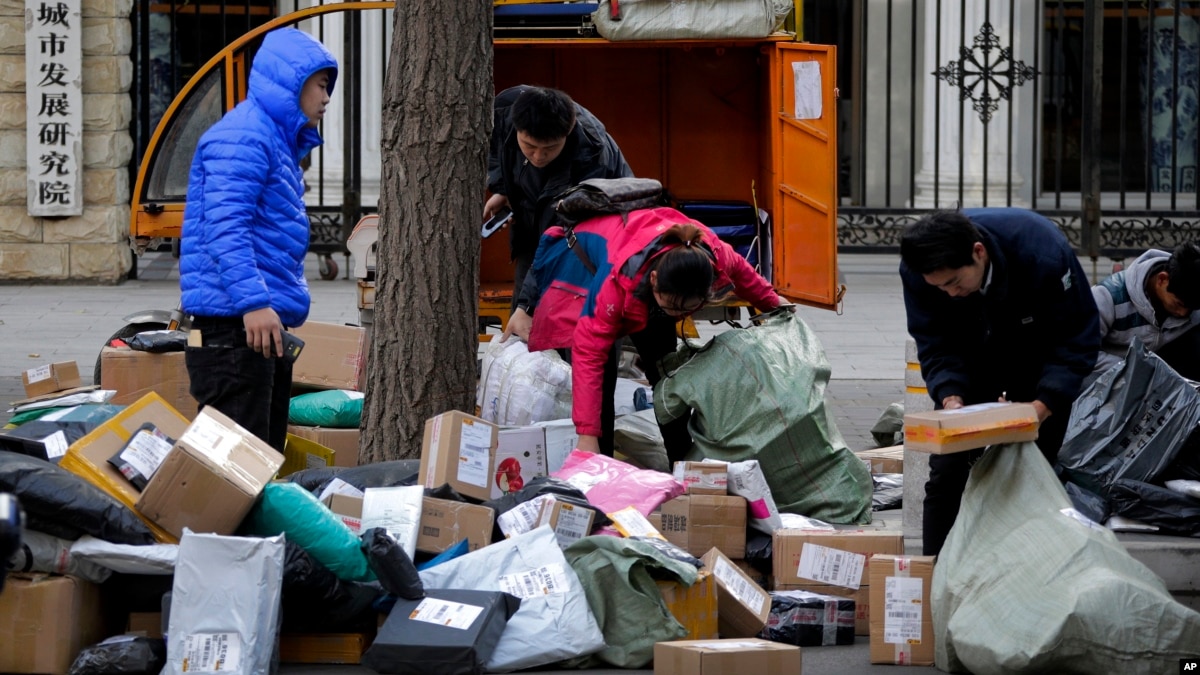
An official measure of China's manufacturing activity fell to a two-year low in October, adding to pressure on Beijing to shore up economic growth amid a tariff war with Washington.
The monthly purchasing managers' index issued Tuesday by the National Bureau of Statistics and an industry group, the China of Logistics and Purchasing, fell to 50.2 from September's 50.8 on a 100-point scale.
Export orders weakened but the biggest impact was from cooling domestic demand after Beijing tightened lending controls to rein in a debt boom.
Forecasters said the slowdown suggests Beijing will need to ease lending controls further and take other steps to shore up economic growth.
S. Korean Voting Machines at Center of DRC Election Dispute
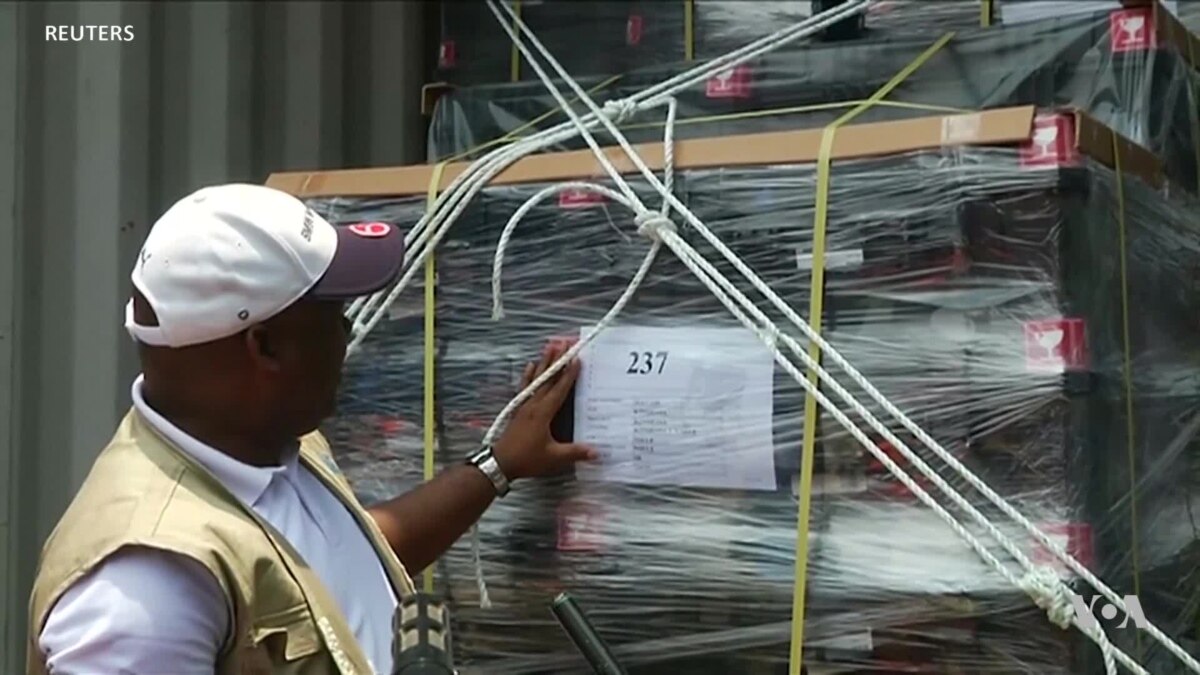
As elections approach in the central African nation the Democratic Republic of Congo, concerns have been raised over the integrity of electronic voting machines being used in the national poll that were made by South Korea’s Miryu Systems. VOA’s Steve Miller reports from Seoul on the risks.
Read More S. Korean Voting Machines at Center of DRC Election Dispute : https://ift.tt/2SvPaSSUnderwater Wreckage of Downed Indonesian Jetliner May Have Been Located

Search and rescue crews may have located the wreckage of an Indonesian jetliner that crashed into the Java Sea just minutes after taking off from Jakarta early Monday morning.
Military chief Hadi Tjahjanto said Wednesday that authorities "strongly believe" they have pinpointed the resting place of Lion Air Flight JT610, which disappeared from radar screens after taking off on a flight to nearby Bangka-Belitung island. Navy officer Haris Djoko Nugroho told an Indonesian television station that a 22-meter long object was discovered late Tuesday night. Nugroho said divers will be sent to inspect the object after they conduct a side-scan sonar to get more detailed images.
Locating the wreckage will put search crews one step closer to recovering the plane's cockpit voice recorder and flight data recorders, known as the "black boxes," which will provide crucial information on why the pilots asked to return to the airport shortly after takeoff.
All 189 passengers and crew were killed in the crash. Divers taking part in the search and recovery efforts have recovered enough human remains from the crash site to fill as many as 48 body bags.
The crash is the first one involving the Boeing 737 MAX 8, a new fuel-efficient version of the legendary passenger jet. Representatives with the U.S.-based aviation company are flying to Indonesia to meet with officials with budget airline Lion Air, which has ordered 50 of the new 737 MAX 8 planes at a cost of $6.2 billion. Lion Air chief Edward Sirait told reporters Monday that the aircraft -- which had only been in service for two months -- suffered a technical problem during a flight from the resort island of Bali to Jakarta the night before, but was resolved according to procedure.
Indonesia's transport ministry has ordered an inspection of all the new 737 MAX 8 jets.
Monday's crash is another black mark on Indonesia's fast-growing aviation sector, which has acquired a reputation for poor safety oversight. The country's airlines have previously been banned from operating in the United States and European Union.
Tuesday, October 30, 2018
Millions of Disaster Victims Miss Out on Humanitarian Aid

The International Federation of Red Cross and Red Crescent Societies has issued an annual report that focuses on the millions of elderly, disabled, and vulnerable victims of natural and man-made disasters who fall through the humanitarian cracks and don't receive desperately needed aid.
The United Nations reports more than 134 million people are in need of humanitarian aid and protection. In addition, many of the more than 68 million migrants on the move get caught in emergency situations and also need assistance.
The International Red Cross Federation says the world is in the middle of an unprecedented period of humanitarian needs because of the severity and frequency of shocks and hazards.
Millions of people who find themselves in dire straits receive the food, shelter, medical and other care they require to help them survive and rebuild their lives.
Unfortunately, IFRC Secretary General Elhadi As Sy said millions of others get lost in the humanitarian system and are left behind. He said those people often have the misfortune of being at the wrong place, at the wrong time and are not counted.
“These are the stories of the old lady or the old man in the middle of a disaster that cannot run to a shelter. This is the disabled person that cannot line up in 40 degrees under the shade to carry a 50-kilo bag of rice. This is a child that is witnessing so many things that a child should never witness.”
Sy said many people are out of sight. They are hidden in the shadows of a disaster or inaccessible to those who could help and so they are left behind. He says millions of people are outside the traditional areas of conflict, disaster, displacement or disease. And so, they too, he says, get left behind.
The Red Cross has several recommendations to remedy the serious gaps in humanitarian assistance operations. They include a call for better data on those most in need of aid and greater efforts by governments to prioritize support for people hardest to reach.
Secretary-General Sy said there should be a major shift in how funds are allocated. He said more money should be entrusted to local and national humanitarian organizations. He said those groups speak the local languages and understand the local customs. He said they are best placed to know which members of their communities are the most isolated, the most vulnerable and the most in need.
US Navy Chief Says US, China to 'Meet More And More on High Seas'

Chief of U.S. Naval Operations Admiral John Richardson said Tuesday the United States and China "will meet each other more and more on the high seas" after a Chinese warship came close to a U.S. ship in the disputed South China Sea.
The Chinese vessel came within 45 yards (meters) of the USS Decatur during a "freedom of navigation" sail in late September, U.S. Vice President Mike Pence said this month.
The U.S. mission was the latest attempt to counter what Washington sees as Beijing's efforts to limit freedom of navigation in the strategic waters, where Chinese, Japanese and some Southeast Asian navies operate.
China's relationship with the Russian navy should be watched "with interest" as it grows, said Richardson, speaking at an event co-organized by the U.S. embassy in Jakarta.
China claims most of the energy-rich South China Sea through which about $3 trillion in ship-borne trade passes every year.
Neighbors Brunei, Malaysia, the Philippines, Taiwan and Vietnam also have claims.
China Steps Up VPN Blocks Ahead of Major Trade, Internet Shows

Chinese authorities have stepped up efforts to block virtual private networks (VPN), service providers said Tuesday in describing a "cat-and-mouse" game with censors ahead of a major trade expo and internet conference.
VPNs allow internet users in China, including foreign companies, to access overseas sites that authorities bar through the so-called Great Firewall, such as Facebook Inc and Alphabet Inc's Google.
Since Xi Jinping became president in 2013, authorities have sought to curb VPN use, with providers suffering periodic lags in connectivity because of government blocks.
"This time, the Chinese government seemed to have staff on the ground monitoring our response in real time and deploying additional blocks," said Sunday Yokubaitis, the chief executive of Golden Frog, the maker of the VyprVPN service.
Authorities started blocking some of its services on Sunday, he told Reuters, although VyprVPN's service has since been restored in China.
"Our counter measures usually work for a couple of days before the attack profile changes and they block us again," Yokubaitis said.
The latest attacks were more aggressive than the "steadily increasing blocks" the firm had experienced in the second half of the year, he added.
The Cyberspace Administration of China did not respond immediately to a faxed request from Reuters to seek comment.
Another provider, ExpressVPN, also acknowledged connectivity issues on its services in China on Monday that sparked user complaints.
"There has long been a cat-and-mouse game with VPNs in China and censors regularly change their blocking techniques," its spokesman told Reuters.
Last year, Apple Inc dropped a number of unapproved VPN apps from its app store in China, after Beijing adopted tighter rules.
Although fears of a blanket block on services have not materialized, industry experts say VPN connections often face outages around the time of major events in China.
Xi will attend a huge trade fair in Shanghai next week designed to promote China as a global importer and calm foreign concern about its trade practices, while the eastern town of Wuzhen hosts the annual World Internet Conference to showcase China's vision for internet governance.
Censors may be testing new technology that blocks VPNs more effectively, said Lokman Tsui, who studies freedom of expression and digital rights at the Chinese University of Hong Kong.
"It could be just a wave of experiments," he said of the latest service disruptions.
'Just a Little Wobble': Thousands Feel 6.1-Magnitude Quake in New Zealand
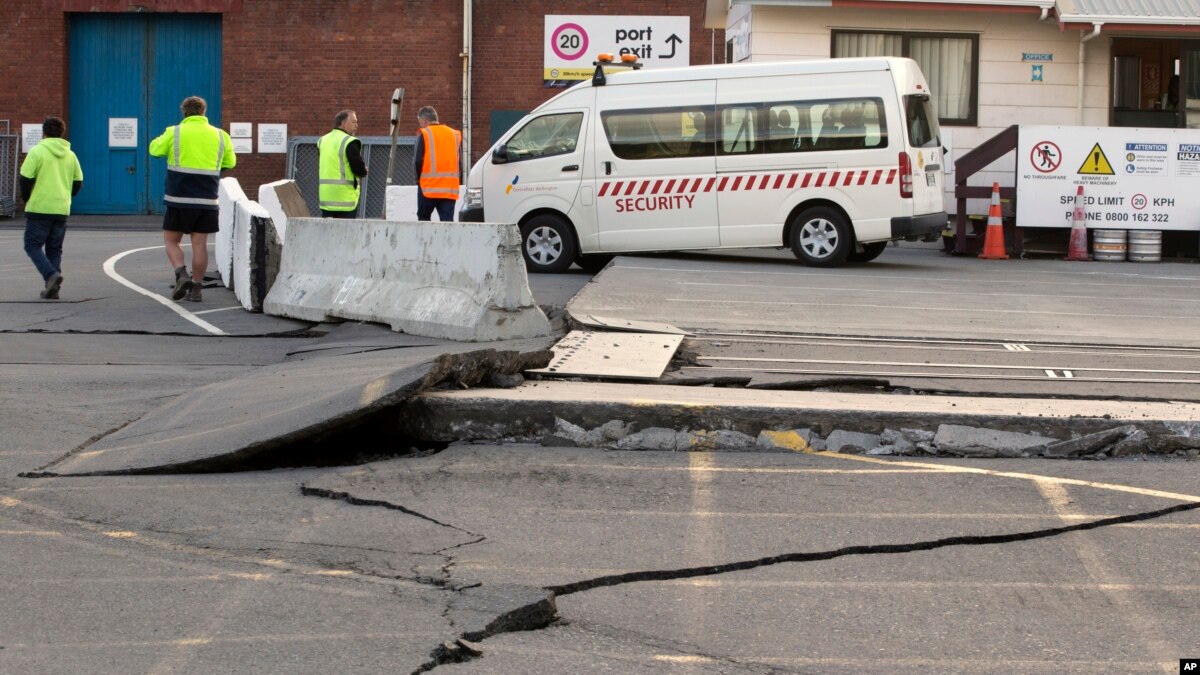
An earthquake of magnitude 6.1 struck New Zealand's north island on Tuesday, the United States Geological Survey said, a tremor felt by thousands of people although there were no immediate reports of damage or casualties.
Parliament was briefly suspended in Wellington and some flights aborted landings there, the New Zealand Herald newspaper said, following the quake, which hit 63 km (39 miles) east of the city of New Plymouth, at a depth of 228 km (142 miles).
"It was just a little wobble, it's not much," said Ken Wheeler, manager of a hardware store at Taumarunui, 31 km (19 miles) northeast of the epicenter.
"We've got quite a gift section here, with crystal glasses, and it did nothing."
The quake had initially been assessed at a magnitude of 6.2. New Zealand's GeoNet quake monitor said about 15,600 people felt the shaking, which most described as moderate or light.
No damage had been reported, a civil defense spokeswoman said.
In Auckland, where Britain's Prince Harry and his wife Meghan are visiting, a Reuters witness said there was no shaking.
Monday, October 29, 2018
Typhoon Yutu Batters Philippines

A typhoon that has caused devastation in some Western Pacific islands made landfall in the Philippines on Tuesday, bringing strong winds and a risk of floods, storm surges and landslides in some northern provinces.
With wind speeds of 140 km per hour (87 mph) and gusts of up to 230 kph, Typhoon Yutu was moving across the main island of Luzon and was due to exit the country during the afternoon on Tuesday, state meteorologist PAGASA said in a report at 8 a.m.
Yutu, locally named Rosita, is the 18th typhoon to hit the Philippines this year and comes just six weeks after super typhoon Mangkhut dumped massive rains on Luzon, triggering landslides that killed more than 70 people.
There were no immediate reports of damage or casualties.
Local television footage from the path of the storm showed strong winds bending trees, sheets of rain and loose debris across roads.
Residents of some mountain and coastal areas were preemptively evacuated from their homes on Monday after warnings were issued for landslides and waves of up to 3 m (9.8 feet).
Edgar Posadas, spokesman for the office of civil defense, said uniformed personnel were on standby to help in any rescue missions.
Yutu has weakened significantly since the night of Oct. 24, when as a super typhoon packing 270 kph winds it made a direct hit on Saipan and Tinian, two islands of the Northern Marianas, an American territory about 9,000 km (5,590 miles) west of the U.S. mainland.
It was the strongest to hit the islands in 50 years and killed a woman and wounded more than 130. Yutu tore off the roofs of buildings, flipped vehicles and damaged electricity poles, generators and water pipes.
US Restricts Exports to Chinese Semiconductor Firm Fujian Jinhua

Opening a new front in its trade and technology disputes with China, the Trump administration on Monday took action to cut off a Chinese state-backed semiconductor maker from U.S. exports of components, software and technology goods.
The Commerce Department said it has put Fujian Jinhua Integrated Circuit Co Ltd on a list of entities that cannot purchase such products from U.S. firms, citing a "significant risk" that the Chinese firm's new memory chip capacity will threaten the viability of American suppliers of such chips for military systems.
It said in a statement that Fujian Jinhua "poses a significant risk of becoming involved in activities that are contrary to the national interests of the United States."
The action is similar to a Commerce Department move that nearly put Chinese telecommunications equipment company ZTE out of business earlier this year by cutting it off from U.S. suppliers.
ZTE, which had violated a deal to settle violations of sanctions on Iran and North Korea, was allowed to resume purchases of U.S. products after a revised settlement and payment of a $1 billion fine.
The action against Fujian Jinhua is likely to ignite new tensions between Beijing and Washington since the company is at the heart of the "Made in China 2025" program to develop new high-technology industries.
The world's top two economies are already waging a major tariff war over their trade disputes, with U.S. duties in place on $250 billion worth of Chinese goods and Chinese duties on $110 billion of U.S. goods.
Fujian Jinhua, which is starting up a new $5.7 billion chip factory in Fujian province, is linked to the Trump administration's accusations that China has systematically stolen and forced the transfer of American technology.
Fujian Jinhua and Taiwanese partner United Microelectronics Corp. (UMC) were accused last December by U.S. memory chip maker Micron Technology Inc of stealing Micron chip designs through poached employees, a case still under way in a California court.
UMC countersued in a Chinese court, accusing Micron of infringing its patents, leading to a temporary ban in July on sales of Micron's main products in China.
It was not immediately clear what effect the Commerce Department action will have on Fujian Jinhua's operations.
U.S. Commerce Secretary Wilbur Ross said in a statement that the Chinese firm's new plant likely was the beneficiary of "U.S.-origin technology" and its additional production would threaten the long-term viability of U.S. chipmakers.
"When a foreign company engages in activity contrary to our national security interests, we will take strong action to protect our national security," he said. "Placing Jinhua on the Entity List will limit its ability to threaten the supply chain for essential components in our military systems."
WHO: Air Pollution a Health Risk for Children

The World Health Organization says air pollution kills hundreds of thousands of children every year and puts the physical health and neurological development of hundreds of millions of other youngsters at serious risk. The WHO is issuing a report titled “Air pollution and child health: Prescribing clean air” on the eve of the U.N. agency's first-ever Global Conference on Air pollution and Health.
The World Health Organization reports more than 90 percent, or nearly 2 billion children under the age of 15, breathe toxic air every day. The WHO says debilitating problems associated with air pollution begin at conception and continue until adolescence.
The report notes pregnant women exposed to polluted air are likely to give birth prematurely and have low-weight babies. A WHO scientist and expert on air pollution, Marie Noel Brune Drisse, warns that many babies will have neurodevelopment problems, resulting in lower IQs.
“The fact is that air pollution is stunting our brains, even before we are born," said Drisse. "The fact that it is leading to diseases that we may not be able to see immediately but look at much later in life like adult diseases. Our lung function and our respiratory systems are being altered during our development.”
Drisse says this can lead to chronic respiratory and cardiovascular diseases, as well as certain types of cancers later in life. In 2016, the report estimated that 600,000 children died from acute lower respiratory infections caused by polluted air. It said the heaviest toll is paid by children in low- and middle-income countries. The report found that the highest death rates among children between the ages of 5 and 14 from both ambient and household air pollution occur in the African region.
The report says switching to clean cooking and heating fuels and technologies could save the lives of many children. It says other measures for reducing the toxic impact of air pollution include moving away from fossil fuels.
The report recommends the use of cleaner, renewable energy sources, less dependence on private cars in favor of public transportation, and better waste management systems. WHO officials say the benefits from implementing such measures will be felt almost immediately.
Japan, India Leaders Agree to Step up Defense, Economic Ties
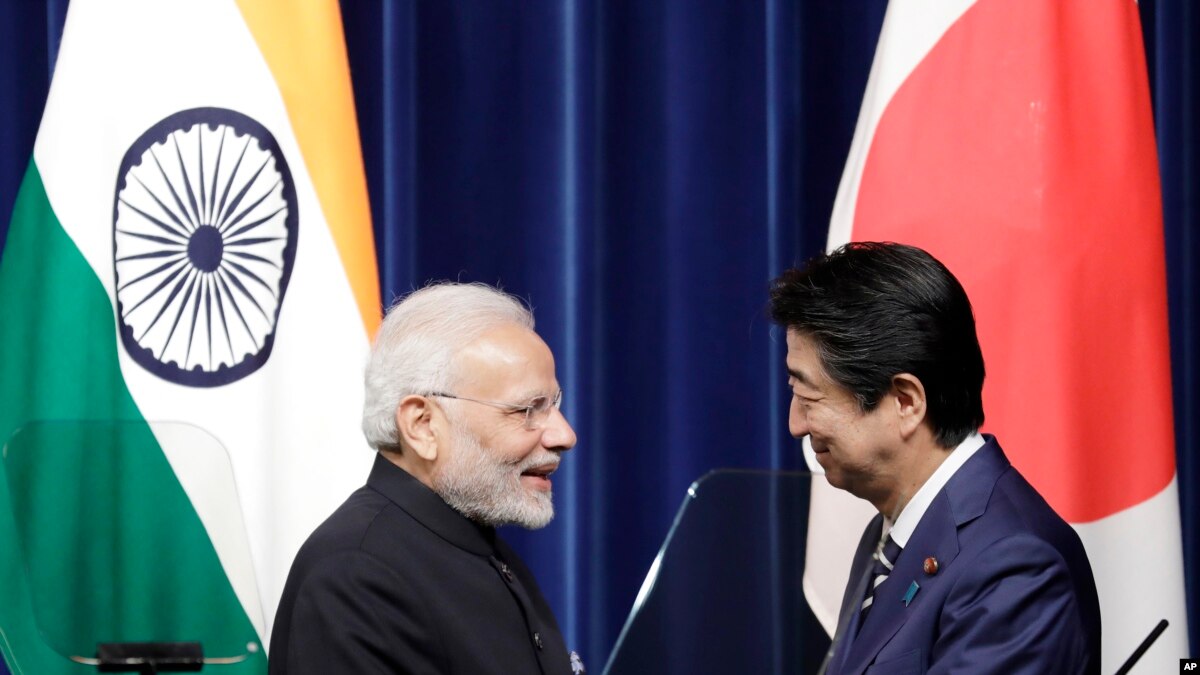
The leaders of Japan and India agreed Monday to step up their cooperation in defense, trade and a range or other areas amid China’s growing influence in the region.
Japanese Prime Minister Shinzo Abe and his Indian counterpart, Narendra Modi, said they are expanding ammunition sales and high-level defense talks and joint military exercises.
“Relations between Japan and India have the biggest potential in the world,” Abe told a joint news conference after holding talks with Modi. “A strong Japan benefits India and a strong India benefits Japan.”
Modi, through an interpreter, responded, “Without India-Japan cooperation, there will be no development in Asia into the next century.”
India is one of the countries that Japan has reached out to form defense partnerships, as Tokyo seeks to expand its military cooperation beyond its traditional alliance with the U.S. amid China’s increasingly assertive military presence in the region.
Japan in recent years has stepped up defense ties with Australia, New Zealand, the Philippines and other Asia-Pacific nations.
Abe and Modi welcomed joint exercises by their ground, sea and air forces and the start of negotiations toward an acquisition and cross-servicing agreement, or ACSA, which would enable sharing of supplies and ammunition between the two militaries as a way to “enhance the strategic depth of bilateral security and defense cooperation.”
They also signed a second-phase agreement for a Japanese super-express railway project in India.
Their meeting came immediately after a trip by Abe to Beijing, where he met with Chinese leaders, showcasing their improving relations. The Asian neighbors agreed to cooperate more in areas of common interest and concern.
Modi has called for regional unity against protectionism. He arrived Saturday and was invited to Abe’s vacation house near Mount Fuji on Sunday for private talks.
Concerns about China’s expanding influence on the regional economy and U.S. trade policy are also bringing Japan and India closer in their economic ties.
The two leaders reaffirmed their commitment to achieve a free and open Indo-Pacific.
Abe pledged low-interest loans worth 316 billion yen ($2.8 billion) for seven infrastructure projects in India. Half of the amount would be allocated to the railway project in western India using Japan’s “bullet train” technology, according to the signed documents.
Japan and India also discussed joint infrastructure projects in the region, including Sri Lanka.
21 Dead in East China Mining Accident

The death toll from a mining accident in east China rose to 21 on Monday after rescuers pulled two more bodies from the mine following a nine-day search, state media said.
The tunnel where 22 miners were working was blocked at both ends by coal after pressure caused rocks to fracture and break on October 20, the official Xinhua news agency said.
Only one miner was rescued alive. The cause of the accident is still under investigation.
Rescuers working to clear the tunnel recovered six bodies Sunday, and another two on Monday.
The accident took place at a mine owned by Longyun Coal Mining Co. Ltd. in Yuncheng County in Shandong province.
Deadly mining accidents are common in China, where the industry has a poor safety record, despite efforts to improve coal production conditions and crack down on illegal mines.
In December 2016, explosions in two separate coal mines in the Inner Mongolia region and in northeastern Heilongjiang province killed at least 59 people.
Earlier that year, 33 miners were killed in a colliery explosion in October in the southwestern municipality of Chongqing, and in September, at least 18 were killed in a mine blast in the northwestern Ningxia region.
According to China's National Coal Mine Safety Administration, the country saw 375 coal mining related deaths in 2017, down 28.7 percent year-on-year.
However, despite improvements, "the situation of coal mine safety production is still grim," said the bureau in a statement following a coal mine safety conference in January.
Trump Faces Complaints That New Iran Sanctions Are Too Weak
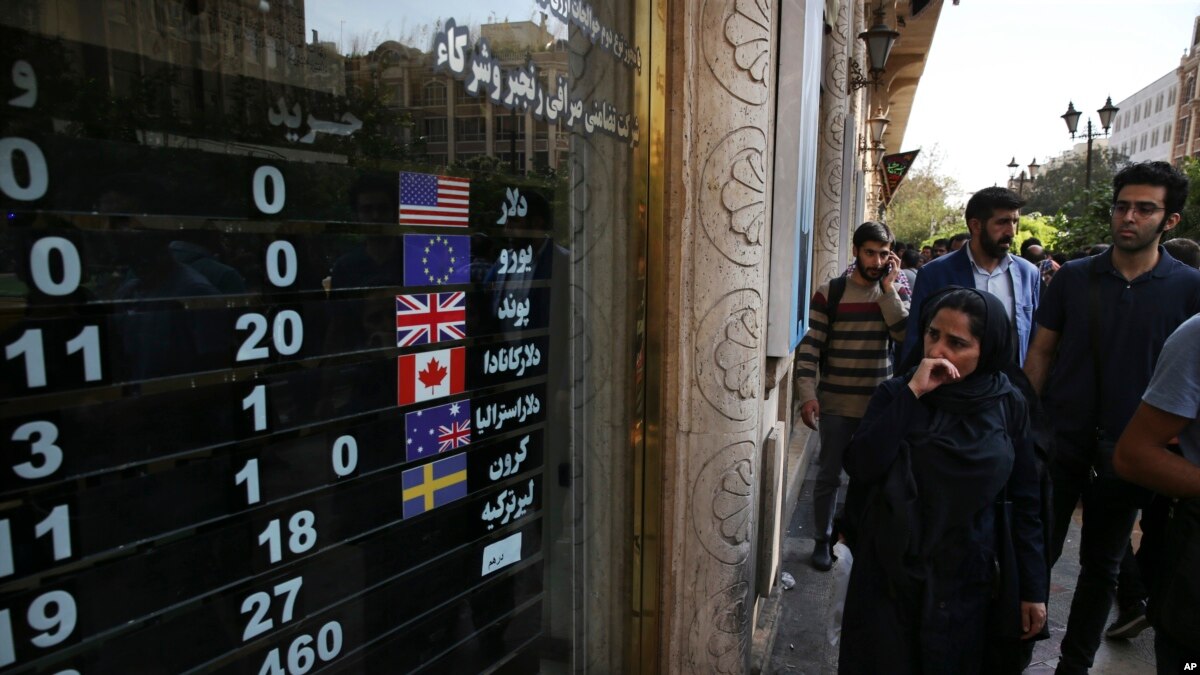
A battle is brewing between the Trump administration and some of the president’s biggest supporters in Congress who are concerned that sanctions to be re-imposed on Iran early next month won’t be tough enough.
As President Donald Trump prepares to re-impose a second batch of Iran sanctions that had been eased under the 2015 nuclear deal, conservative lawmakers and outside advisers have become worried that the administration may break a promise to exert “maximum pressure” on Iran. They are angered by suggestions that measures to be announced Nov. 5 won’t include a provision cutting Iran off from a key component of the global financial system.
The self-described Iran hawks are concerned enough that they have drafted legislation that would require the administration to demand that Iran be suspended from the international bank transfer system known as SWIFT.
“The president asked for maximum pressure, not semi-maximum pressure,” said Richard Goldberg, a former aide to a Republican senator and senior adviser to the Foundation for the Defense of Democracies, a group that supports punishing Iran with sanctions. “Maximum pressure includes disconnecting Iranian banks from SWIFT.”
Trump pledged Thursday to do whatever it takes to pressure Iran to halt what he refers to as its “malign conduct” such as nuclear and missile development and support for terrorism and groups that destabilize the Middle East.
“On Nov. 5th, all U.S. sanctions against Iran lifted by the nuclear deal will be back in full force,” he told a gathering at the White House to commemorate the 35th anniversary of the 1983 attack on the Marine Corps barracks in Beirut, Lebanon, which is blamed on Iranian-backed extremists. “And they will be followed up with even more sanctions to address the full range of Iran’s malign conduct. We will not allow the world’s leading sponsor of terror to develop the world’s deadliest weapons. Will not happen.”
The Nov. 5 sanctions cover Iran’s banking and energy sectors and will reinstate penalties for countries and companies in Europe, Asia and elsewhere that do not halt Iranian oil imports. They could also include measures to force Iran out of SWIFT.
Despite Trump’s tough stance, the hawks are worried about recent comments from Treasury Secretary Stephen Mnuchin and his staff that suggest Iran will be able to stay connected to SWIFT. They are also concerned the administration will back down on its stated zero-tolerance policy for Iranian oil purchases by granting waivers to certain countries and companies that do not fully stop buying it.
Iran deal supporters, like the other parties to the agreement, argue that pushing Iran out of SWIFT, the Belgium-based Society for Worldwide Interbank Financial Telecommunication, will lead to the creation of alternate mechanisms that could supplant it as the leading global institution for financial institutions to send and receive information about banking transactions. They also say expulsion will make it harder for Iran to conduct transactions, such as humanitarian purchases, that will still be allowed after Nov. 5.
Allowing Iran to remain in SWIFT would make it easier for Tehran to import humanitarian goods like medicine permitted under U.S. sanctions and “would help the United States make clear that its critique of Iran is directed at the regime, not the people of Iran,” said Elizabeth Rosenberg, a former Treasury official now with the Center for a New American Security. She added, though, that disconnection would be a “fast track” to isolation.
The debate underscores the challenges the administration faces as it tries to isolate Iran without the full backing of other world powers who remain supportive of the nuclear deal.
Although the hawks had been pleased by Trump’s decision to withdraw from the nuclear deal in May and cheered the August re-imposition of an initial set of sanctions, they are now seething that Treasury may opt to use existing safeguards to isolate Iran instead of hitting SWIFT members with sanctions if they don’t disconnect Tehran.
Treasury has been coy about its intentions, saying only that Mnuchin and the agency have led “an intense economic pressure campaign against Iran as part of this administration’s comprehensive strategy to address the totality of Iran’s malign and destabilizing activity, with much more to come.”
“Treasury has made it very clear that we will continue to cut off bad Iranian actors, including designated banks, from accessing the international financial system in a number of different ways,” it said. “We will also take action against those attempting to conduct prohibited transactions with sanctioned Iranian entities regardless of the mechanisms used.”
That less-than-categorical position has rallied the hawks around the legislation prepared by Sen. Ted Cruz, R-Texas, that would require the administration to impose sanctions on SWIFT members, including some U.S. banks, should it not suspend Iran on its own.
Federal law currently gives the administration authority to act against Iran’s central bank and other banks covered by terrorism and money laundering sanctions. Cruz’s legislation, however, would authorize the administration to hit all of Iran’s banks with sanctions and require it to act against SWIFT if it connects any Iranian bank under sanctions to its system, according to a copy seen by the AP.
In August, Cruz led a group of 16 GOP senators, including Trump Republican allies Tom Cotton of Arkansas, Marco Rubio of Florida, Thom Tillis of North Carolina and John Barrasso of Wyoming, in demanding action against SWIFT if Iran is not suspended. Congressional aides say they believe support for his proposed legislation will be strong.
“The administration’s maximum pressure campaign will not succeed if the Islamic Republic remains connected to SWIFT,” the senators told Mnuchin.
Read More Trump Faces Complaints That New Iran Sanctions Are Too Weak : https://ift.tt/2OXYfptUS Envoy to N. Korea Expresses Confidence About Denuclearization
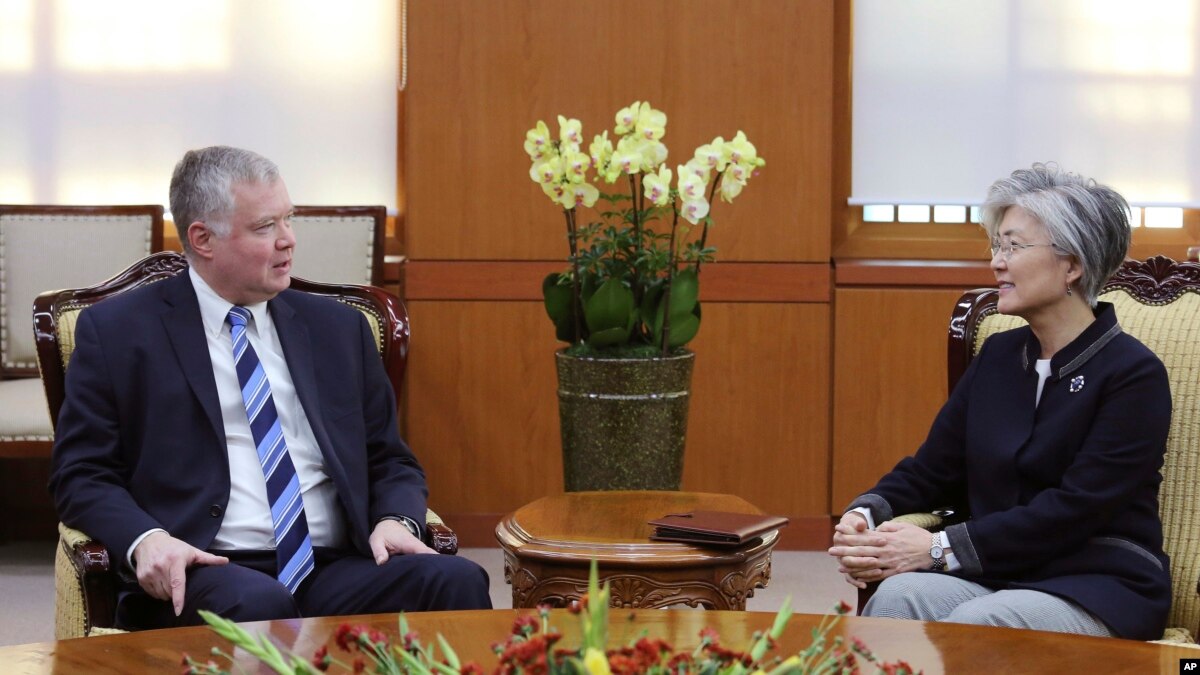
The U.S. special envoy for North Korea has expressed confidence about achieving the communist country’s nuclear disarmament.
Stephen Biegun met with South Korean Foreign Minister Kang Kyung-wha in Seoul on Monday to discuss the progress in the talks between Pyongyang and Washington.
Following a meeting with his South Korean counterpart Lee Do-hoon, Biegun said that Washington and the South have a shared goal of ending seven decades of hostility on the Korean Peninsula.
"We have a shared goal here, which is to bring an end to 70 years of war and hostility on the Korean Peninsula and the primary requirement for us to get to that endpoint is to achieve the final, fully verified denuclearization of North Korea. So I am absolutely confident that this is within the reach. I think our two presidents are singularly focused on this goal,” Biegun said.
South Korean Special Representative for the Korean Peninsula Peace and Security Affairs Lee Do-hoon said that the denuclearization process has reached a critical stage and sides need to meet as often as possible.
"Denuclearization process is at a critical juncture and we need to meet up as often as possible to make sure there is no daylight whatsoever between our two allies,” Lee Do-hoon said
Since the Trump-Kim summit in June in Singapore, North Korea has taken some measures, namely halting nuclear and missile tests and dismantling its nuclear testing site.
Earlier this month, U.S. Secretary of State Mike Pompeo made his fourth trip to North Korea and had meetings in Japan and South Korea to arrange a second summit between President Donald Trump and North Korean leader Kim Jong-Un.
Trump will likely have his second meeting with Kim early next year, according to U.S. officials.
Sunday, October 28, 2018
Pressure on Australia to Free 50 Child Detainees Held on Nauru
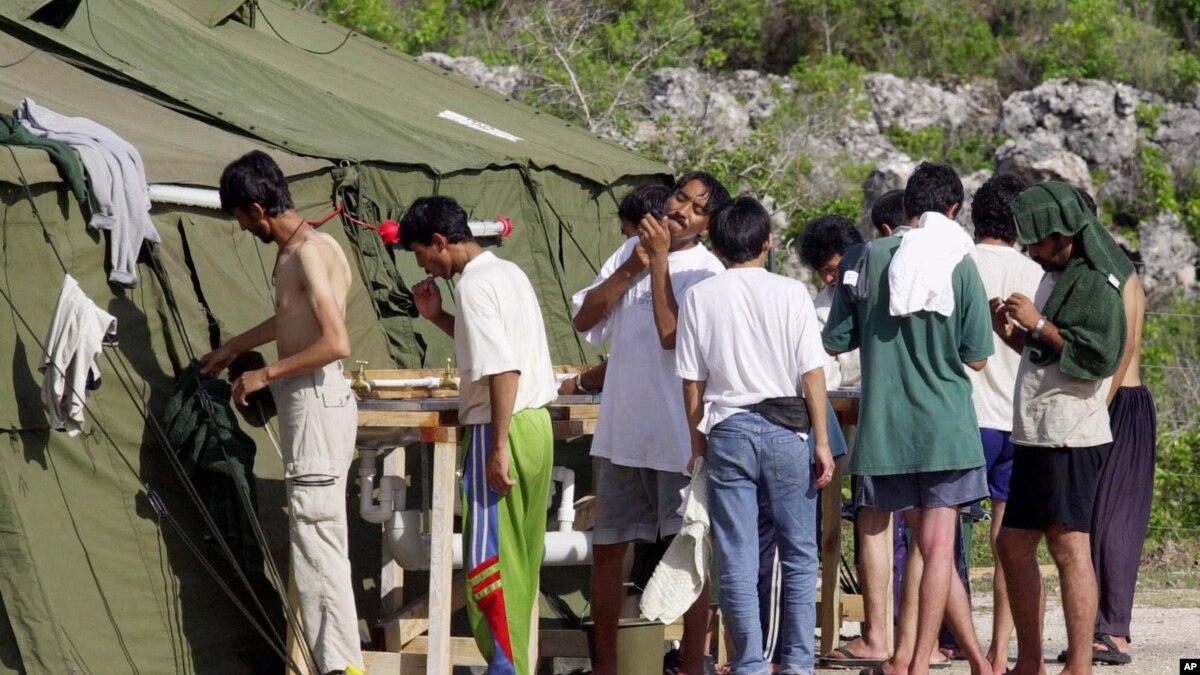
Australia wants to ban refugees that have been detained after arriving by boat and resettled in other countries from ever entering Australia. Ministers say the measures would stop migrants using the so-called ‘back door’ into the country.
There has been mounting pressure on Australia’s center-right government to give refuge to more than 50 child migrants held on Nauru. Some have been detained on the tiny South Pacific republic for five years. The island of Nauru is host to an Australian sponsored detention facility. Doctors have been expressing increasingly grave fears for the children’s mental and physical health.
The government says it is willing to allow asylum seekers and refugees on Nauru to start new lives in other countries. The United States has an agreement to resettle hundreds of migrants held in Australian offshore processing centers. New Zealand, too, has offered a home to 150 refugees.
There is though a condition to Australia’s acquiescence. Any migrant resettled in a third country would never be allowed to enter Australia. Canberra argues this would maintain the integrity of a border protection policy that is designed to deter unauthorized boat arrivals.
The opposition Labor party says it will now support the legislation, but only for those refugees being sent to New Zealand from Australia’s controversial offshore processing center on the island of Nauru.
Peter Dutton, Australia’s Home Affairs Minister, said Labor’s approach is flawed.
“Let me say this, Mr Speaker, there are 13 children on Nauru at the moment. They are involved in family groups. Adults, mostly males within that family unit, are the subject of adverse security assessments from the United States. Now, the first question, Mr Speaker, is New Zealand going to take those people where the United States has advised that that person, that individual within the family unit is a risk to national security,” Dutton said.
Labor’s immigration spokesman, Shayne Neumann, said the well-being of vulnerable children is his priority.
“Labor thinks that we need to prioritize the health and welfare of these children and their families in Nauru and that is why Labor has been prepared to move its position in this respect,” Neumann said.
More than 200 detainees are held in Nauru. Under strict border control laws Canberra seeks to deny them resettlement in Australia, even if their refugee claims are genuine.
Australia argues that offshore processing is a powerful deterrent for migrants risking their lives at sea, often trying to make the journey on rickety fishing boats from Indonesia. Rights groups have consistently claimed conditions are cruel and inhumane.
A second offshore center at Manus Island in Papua New Guinea closed last year after local judges said it was unconstitutional.
Japan, India Leaders Build Ties Amid Trade, Security Worries
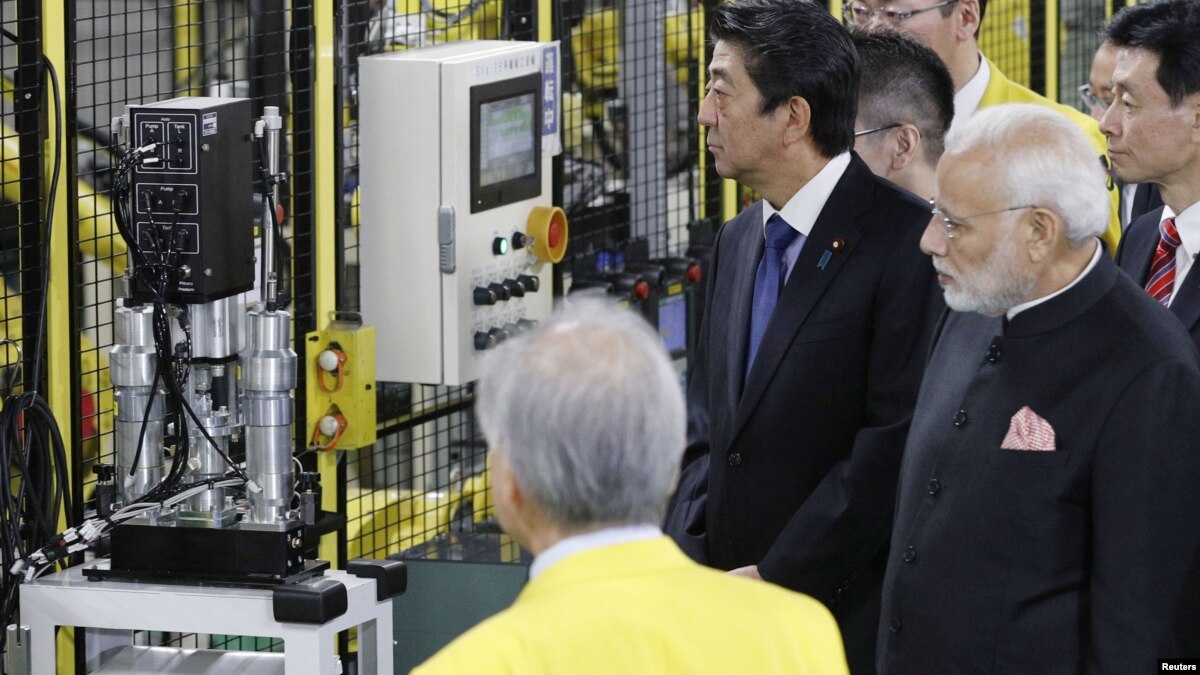
The leaders of Japan and India are reaffirming their ties amid growing worries about trade and regional stability.
Indian Prime Minister Narendra Modi, who arrived Saturday, was meeting Japanese Prime Minister Shinzo Abe at a resort area near Mount Fuji on Sunday. Modi is also visiting a nearby plant of major Japanese robot maker Fanuc.
Relations with China are a major issue shared by Modi and Abe, as their cooperation may balance China's growing regional influence and military assertiveness.
"The India-Japan partnership has been fundamentally transformed and it has been strengthened as a 'special strategic and global partnership,'" Modi told Kyodo News service. "There are no negatives but only opportunities in this relationship which are waiting to be seized."
Modi chose Japan among the first nations to visit after taking power four years ago. He has been urging countries in the Indo-Pacific region to unite against protectionism and cross-border tensions.
In another sign of closer relations, India and Japan are also set to hold their first joint military exercises involving ground forces, starting next month.
Abe has just returned from China, where he met President Xi Jinping and agreed the two nations were "sharing more common interests and concerns."
President Donald Trump's policies that have targeted mostly China with tariffs, but also Japan and other nations, accusing them of unfair trade practices, are working to prod India and Japan to promote their economic ties.
The Japanese Foreign Ministry said the leaders had lunch at a hotel in Yamanashi Prefecture, west of Tokyo, and exchanged a wide range of views on pursuing "a free and open" Indo-Pacific region. Abe told Modi about his recent trip to China, and both sides agreed on the need to cooperate closely on getting North Korea to drop nuclear weapons development, the ministry said in a statement.
Japan's investment in India still has room to grow. Japan is helping India build a super-fast railway system.
Abe has made bolstering and opening the nation's economy central to his policies called "Abenomics," and has encouraged trade, foreign investment and tourism.
Although Japan has long seen the U.S. as its main ally, especially in defense, Abe is courting other ties. He has also been vocal about free trade, which runs counter to Trump's moves to raise tariffs.
Earlier this year, Japan signed a landmark deal with the European Union that will eliminate nearly all tariffs on products they trade. European and Japanese leaders pledged to strengthen their partnership in defense, climate change and human exchange, to send what they called a clear message against protectionism.
Abe and Modi will hold a more formal summit Monday in Tokyo.
Saturday, October 27, 2018
Trading Plastic Trash in Indonesia for Free Transportation

It was reported recently that microplastics, both in the ocean and in the plastic all around us, is finding its way into the human body. But the convenience and affordability of plastic means that, for now, the best we can hope to deal with this problem is to improve recycling efforts. Indonesia's second largest city is trying to do just that by offering free rides on the city's bus system in return for plastic trash. VOA's Kevin Enochs reports.
Read More Trading Plastic Trash in Indonesia for Free Transportation : https://ift.tt/2Sq6MQbFriday, October 26, 2018
China Will Prosecute Graft, Terror Suspects Even if They Flee

China changed its law on Friday to allow judgements to be delivered in corruption and terror cases even when the suspects do not appear in court, as Beijing ramps up pressure on dozens of suspected criminals hiding overseas.
Since taking office more than five years ago, President Xi Jinping has waged war on graft at all levels of the ruling Communist Party and has pledged that the fight must continue until corruption is impossible and unimaginable for officials.
The campaign has spread beyond China's borders to graft suspects who have fled abroad, though efforts have been hampered by suspicion among Western nations uneasy about handing over suspects to a system they believe might not provide a fair trial.
Now an amendment to the criminal procedure law by China's largely rubber-stamp parliament will strengthen the overseas graft and terror fight by allowing judgements to be delivered in cases involving absentee suspects, a senior lawmaker said.
Wang Aili, director of the Criminal Law Office with parliament's Legal Affairs Commission, told a news briefing those who could be tried in absentia would include corruption suspects and those wanted for harming national security or for involvement in terror cases.
To qualify for a trial in absentia, there should be a time-sensitive urgency in handling the case and the top prosecutor would need to approve it, Wang said.
A copy of the subpoena would also need to be sent to the defendant to guarantee their "right to know," he said.
A suspect can be defended in court in such "default judgement" cases, even if they are not there, by a lawyer, who can be chosen by the defendant's close relatives or have one assigned by the state, the official Xinhua news agency said.
Once the judgement is issued, the defendant and their close relatives can appeal to a higher court, Xinhua said.
In April 2015, authorities published a list of 100 "most-wanted" graft suspects believed to be hiding overseas, many in the United States, Canada and Australia. More than half have come back to China, some voluntarily.
China has turned up the pressure on graft suspects overseas by asking their family members to contact them and encourage their return, as well as by releasing personal details about the individuals, including their addresses.
The change comes after China passed a new supervision law in March and set up a powerful anti-graft commission to extend the graft fight to all state employees, whether party officials or not.
The new system and law weaken rights protections for suspects by entrenching the use of controversial detention and questioning techniques that can allow abuse or torture, rights groups and legal experts have said.
China is also in the midst of tightening its security laws having passed a tough counter-terrorism law in late 2015, mostly to combat what it says is a serious threat from Islamist militants in its far western region of Xinjiang.
China has not provided details of how many terror suspects may be overseas, including how many ethnic Uighurs from Xinjiang the government thinks have gone to the Middle East and Afghanistan to join militant groups there.
Sources: Honda Mulls Moving US-Bound Fit Production to Japan

Honda Motor Co is considering shifting production of its U.S.-bound Fit subcompact cars to Japan from Mexico in a few years, partly due to a new North American trade agreement, two people familiar with the deal told Reuters.
Fit cars for export to the United States are now made at Honda's auto plant in Celaya, Mexico. The Celaya plant also makes HR-V sport utility vehicles (SUVs) for the U.S. market.
A Honda spokesman said the company had not made any decisions on Fit production.
The new trilateral deal, which replaces the 1994 North American Free Trade Agreement (NAFTA), is set to raise the minimum North American content for cars to qualify for duty-free market access to 75 percent from 62.5 percent.
U.S. President Donald Trump wants the deal to shrink the U.S. trade deficit by curbing imports into the United States and boosting production of foreign-branded vehicles there.
But the terms of the trade deal reduce Honda's incentive to produce the Fit in Mexico for the U.S. and European markets, said the sources, one of whom has direct knowledge of the plan and the other who was briefed on it.
They declined to be identified as the matter was still confidential.
In addition, they said, U.S. consumers are increasingly shifting to SUVs, making it more advantageous for the Mexico plant to build those, rather than subcompacts.
One of the sources said if Honda decides to shift production, it would come when the company launches its next Fit model in the next few years.
Knife Attack Injures 14 Children in China
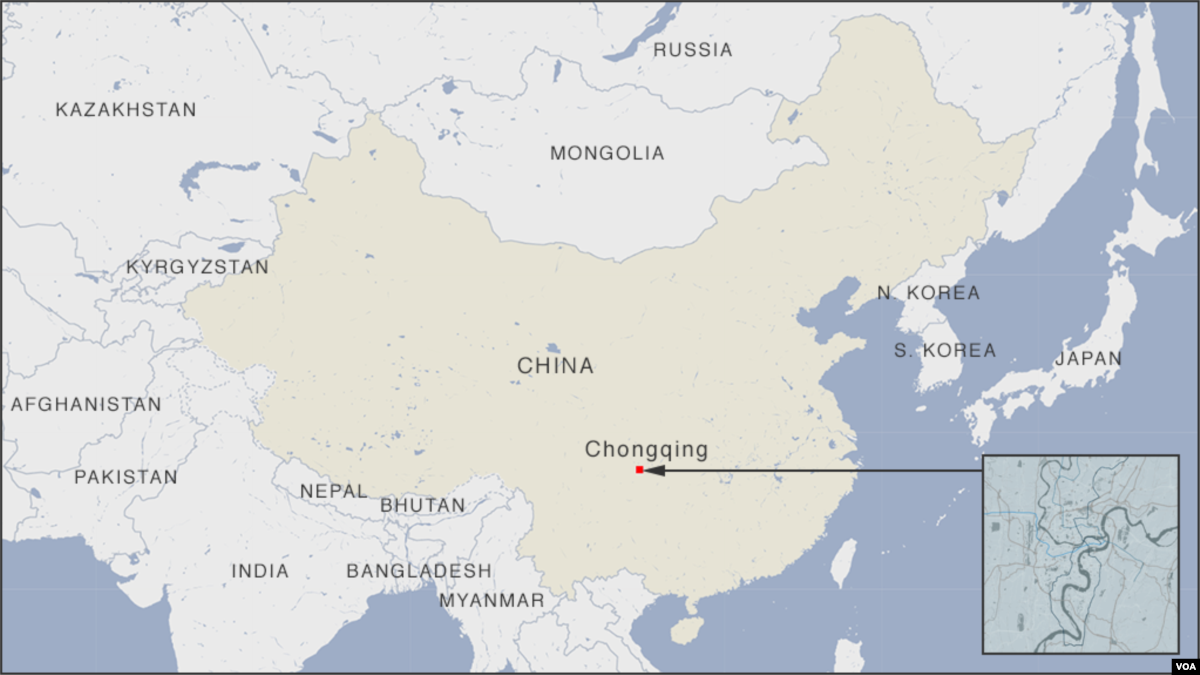
A woman armed with a knife launched an attack on kindergarten students in western China Friday morning, injuring 14 children.
The assailant, identified only by her surname Liu, attacked the youngsters as they were returning to the school in the city of Chongqing after their morning exercises.
All the students were taken to a hospital.
The 39-year-old woman was taken into police custody.
China has had a number of similar attacks in recent years. They are usually blamed on an assailant's mental illness or on someone who is holding a grudge.
China has restrictive laws on the sale and possession of firearms.Mass attacks are usually carried out with knives or homemade explosives.
Thursday, October 25, 2018
Bangladesh Seeks to Relocate 100,000 Rohingyas to a Bay of Bengal Island
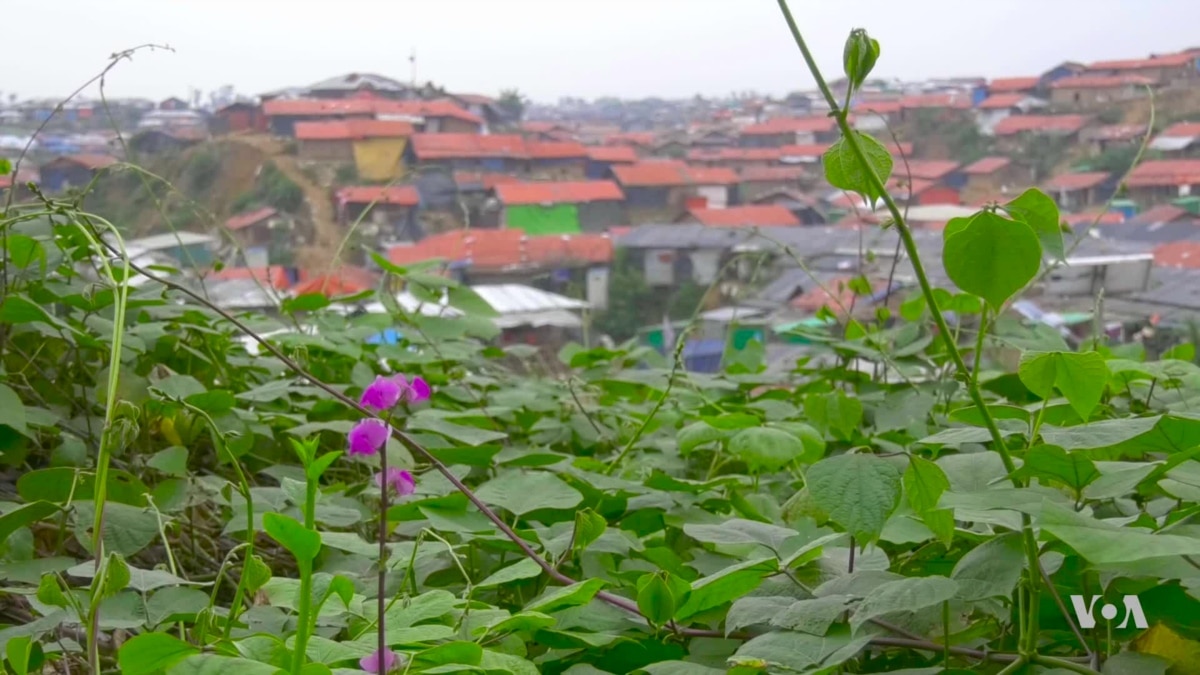
The Bangladesh government is working to turn a muddy, uninhabited island in the Bay of Bengal into a place that can house roughly 100,000 Rohingyas who have sought refuge in the country after fleeing Myanmar following a military crackdown. But questions remain whether Bhashan Char Island will be suitable for so many people to live. VOA's Muazzem Hossain Shakil has filed a report from Cox's Bazar narrated by Bezhan Hambard.
Read More Bangladesh Seeks to Relocate 100,000 Rohingyas to a Bay of Bengal Island : https://ift.tt/2JgF8AVChina, Japan Sign Agreements to Strengthen Cooperation
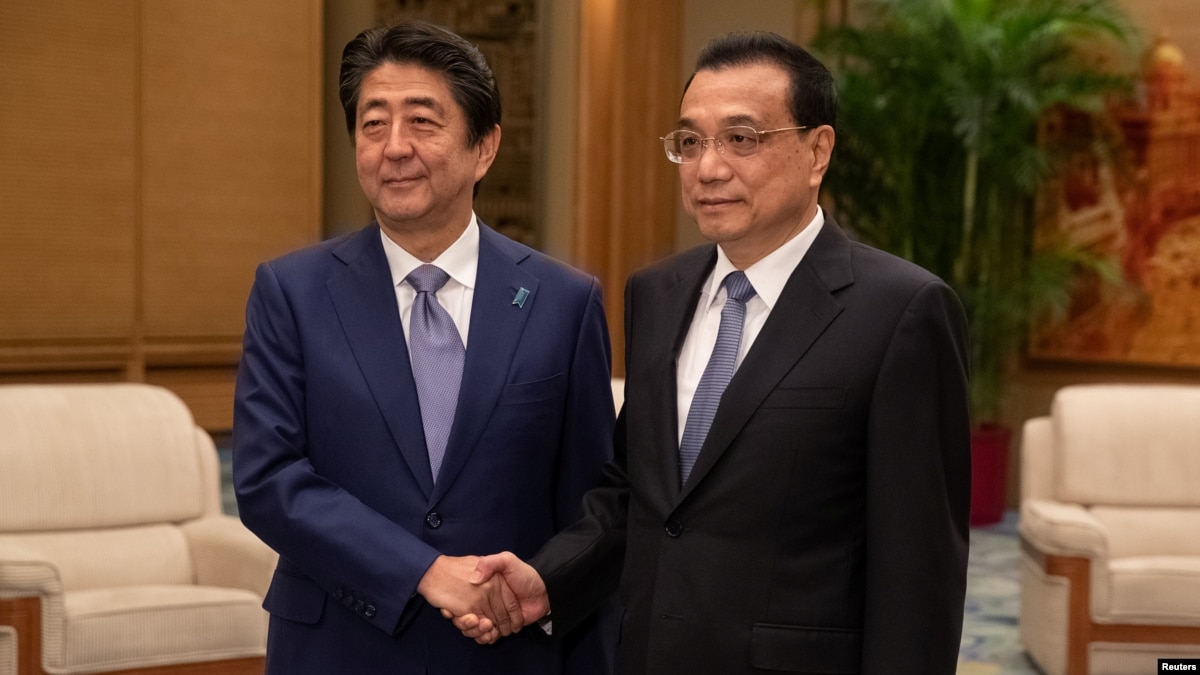
China and Japan on Friday signed a broad range of agreements on strengthening bilateral ties, pledging to step up cooperation in areas from finance and trade to innovation and securities listings, according to a Reuters witness.
The agreements were signed during Shinzo Abe’s visit to Beijing, the first by a Japanese prime minister in seven years, as Asia’s two biggest economies looked to further build relations and trust against a backdrop of trade friction with the United States.
Korean Truce Village to Be Free of Arms
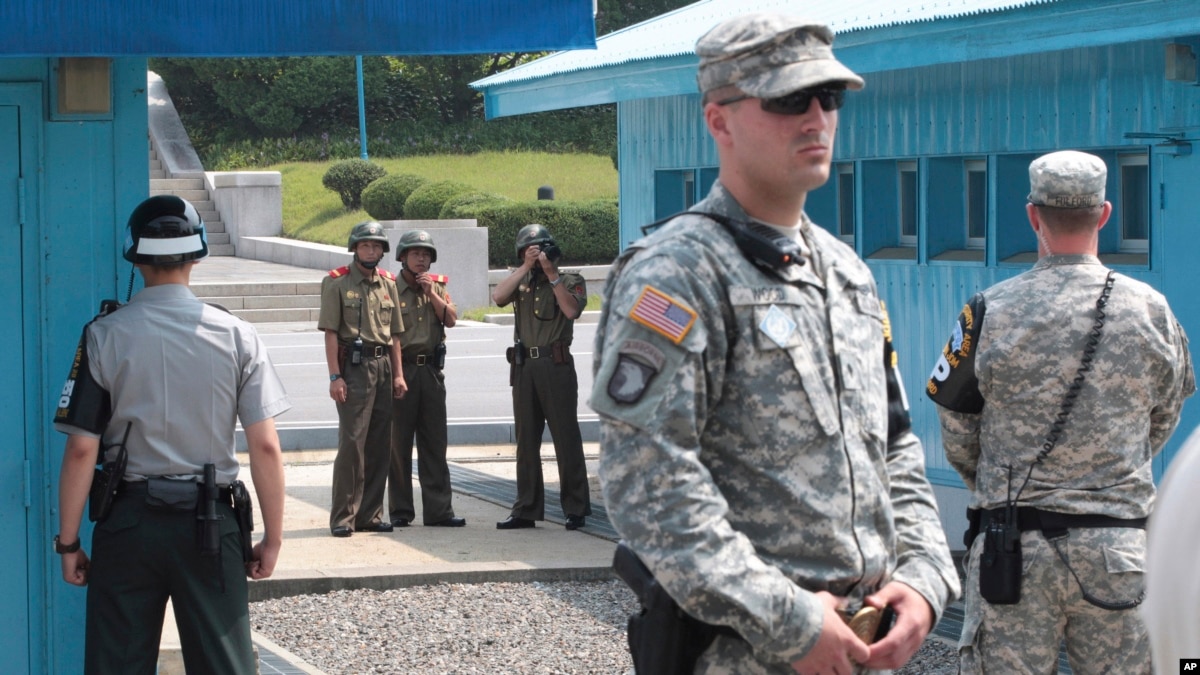
For the first time in decades, the 1953 truce village between North and South Korea will be weapons-free by Saturday.
The two Koreas agreed last month to remove arms from Panmunjom, officially known as the Joint Security Area.
Armed soldiers from the North and the U.S.-led United Nations Command have glowered at each other across the frontier since the 1953 armistice that ended the fighting in Korea.
As soon as North and South Korean defense officials and U.N. experts verify the village is now weapons-free, 35 unarmed guards will patrol the crossing and visitors and tourists will once again have "freedom of movement."
Panmunjom had been a neutral zone, where visitors could walk around freely, until 1976 when North Korean forces opened fire on a work party chopping down a tree, killing two U.S. soldiers.
Both sides completed removing landmines from the Joint Security Area last week.
North and South Korea are still technically at war. A peace treaty has never been signed, only an armistice.
But talks between South Korean President Moon Jae-in and North Korean leader Kim Jong Un have led to warmer ties and greater cooperation.
China Denies Trump Spying Report, Suggests Change of Phones
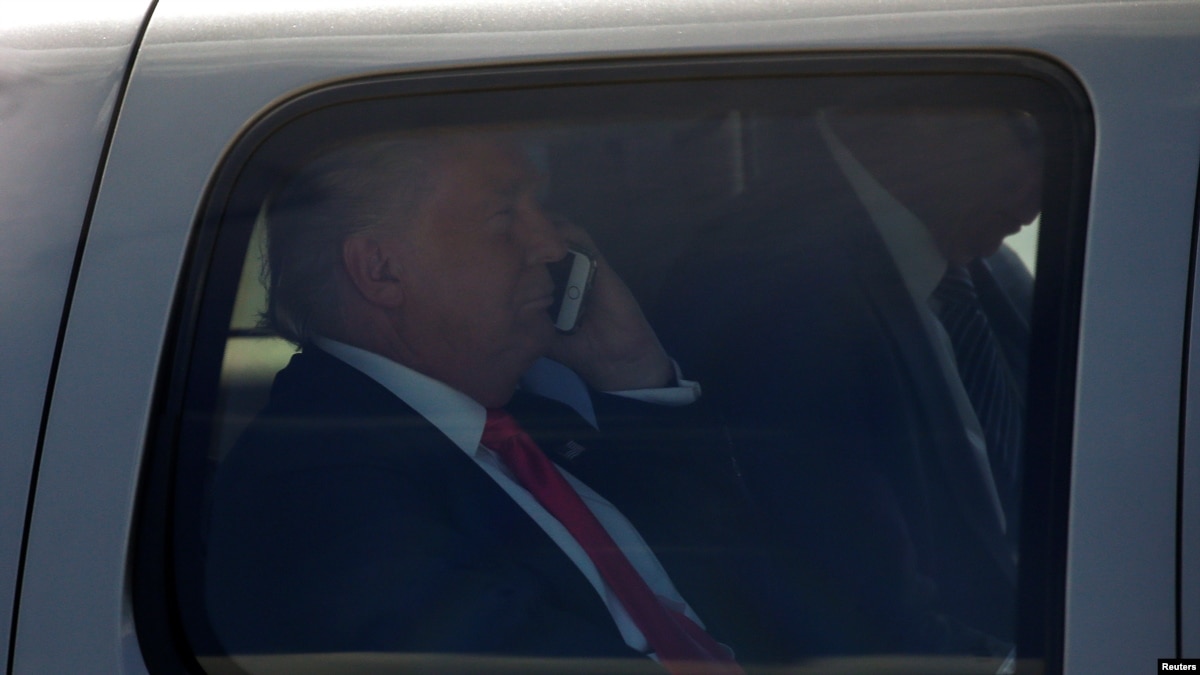
China has denied a U.S. newspaper report that it is listening to President Donald Trump's phone calls, and is suggesting he exchange his iPhone for a cellphone made by Chinese manufacturer Huawei.
Foreign Ministry spokeswoman Hua Chunying told reporters Thursday that the report in the New York Times was "fake news."
She also said if the U.S. is still concerned about security, Trump could "abandon all modern communication devices and cut off contact with the outside completely."
The Times reported that American intelligence reports said Chinese and Russian spies are listening in when Trump calls friends on one of his iPhones and is using the information to try to influence him and impact administration policy.
A 2012 report by a congressional panel said Huawei's equipment was a security risk.
Japanese Journalist Says 3-Year Captivity in Syria Was 'Hell'
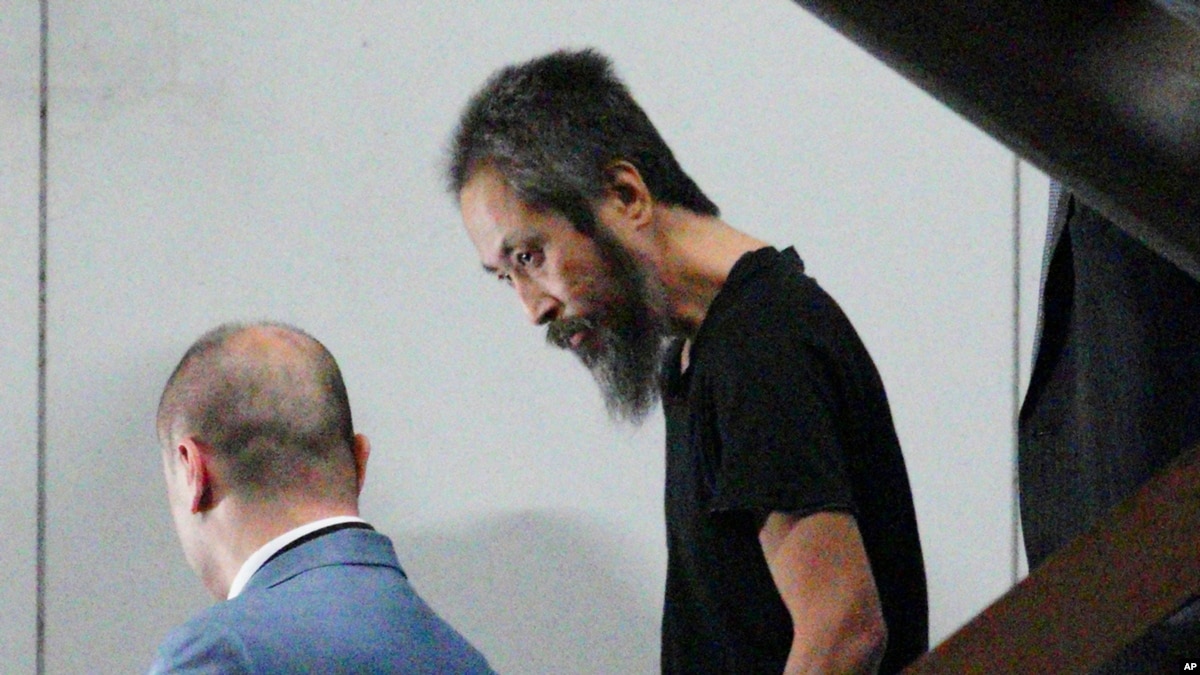
A Japanese freelance journalist has arrived home in Tokyo after more than three years in captivity in Syria.
Onlookers watched through airport terminal windows as a Turkish Airlines flight carrying Jumpei Yasuda touched down at Tokyo airport Thursday, and as Yasuda disembarked, walked towards a waiting van and was driven away.
The 44-year-old journalist walked into an immigration office in the southern Turkish city of Antakya on Tuesday. Japanese diplomats confirmed his identity Wednesday.
Yasuda was abducted in 2015 by an al-Qaida-affiliated group after arriving in Syria to cover that country's civil war.
During an earlier trip from Antakya to Istanbul, Yasuda told Japanese reporters that his 40 months in captivity was "hell," both physically and mentally, and even started to believe he would never be released.
He said he was happy to finally be going home, but expressed concerns about his future: "I don't know what will happen from here or what I should do," he told reporters.
Yasuda also said he had not spoken Japanese in more than three years.
The circumstances of Yasuda's release are unclear. But a senior Japanese government spokesman said Qatar and Turkey negotiated his freedom. The spokesman denied a ransom was paid.
This is the second time Yasuda was kidnapped while covering the Middle East, having been held hostage for a brief period in Baghdad in 2004.
Former Malaysia PM, Treasury and Spy Chiefs Charged With Graft
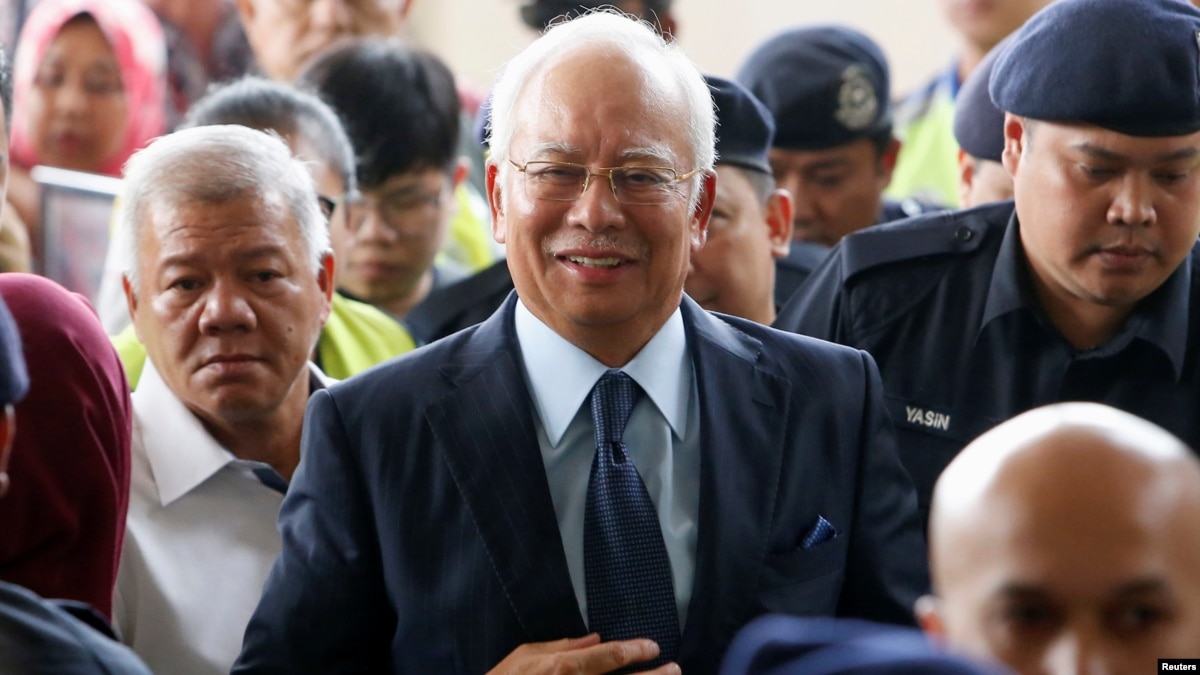
Former Malaysian Prime Minister Najib Razak and his ex-treasury chief were jointly charged Thursday with criminal breach of trust involving 6.64 billion ringgit ($1.6 billion), while the former head of his spy agency was charged with misappropriating $12.1 million.
The six new charges against Najib come on top of 32 earlier counts of corruption, breach of trust and money laundering that he faces linked to the multibillion-dollar looting of the 1MDB state investment fund.
Malaysia’s new government has stepped up prosecution of Najib and other former officials over the 1MDB scandal and other alleged graft cases since its stunning electoral victory in May that led to the country’s first change of power since independence from Britain in 1957.
Both Najib and former treasury secretary-general Mohamad Irwan Serigar Abdullah pleaded not guilty to misappropriating government funds between December 2016 and December 2017. The charge sheets said part of the money involved a subsidy for the poor and an airport management budget but gave no further details.
Najib’s lawyer, Shafee Abdullah, called the charges “foolish,” saying the fund was merely being diverted for more urgent needs, which were to meet payment datelines mainly for 1MDB as well as for a Chinese-backed rail link and two gas pipeline projects.
Shafee said the two men had made “executive decisions” to reallocate the funds to avoid debt defaults that could cause dire financial consequences.
The new government has said it would cancel the Chinese-backed projects and is looking into why Najib’s administration paid an unusually large sum of money to Chinese contractors despite little work done.
Separately, Hasanah Abdul Hami, the former chief of the foreign intelligence agency that is now defunct, pleaded not guilty to misappropriating $12.1 million weeks before the May 9 general election that ousted Najib’s coalition.
Hasanah’s lawyer, Shaharuddin Ali, told reporters that her case is not related to the 1MDB scandal. He said the use of the money for intelligence purposes was a state secret and mustn’t be made public in an open court.
All three have been released on bail.
The 1MDB fund, set up by Najib, is being investigated in the U.S. and several other countries. U.S. investigators say Najib’s associates stole and laundered $4.5 billion from the fund from 2009 to 2014, some of which landed in Najib’s bank account.
Wednesday, October 24, 2018
Hammer and Tongs: China Entrepreneur Leads Handmade Wok Revival
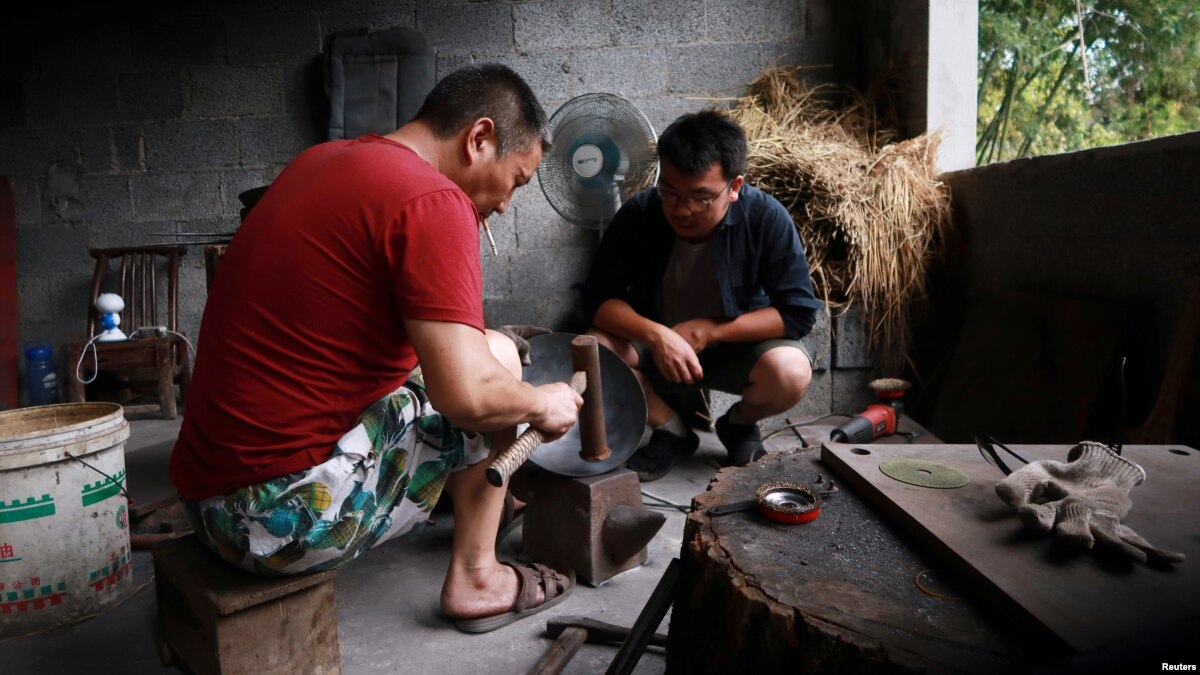
A Chinese entrepreneur is reviving old ways of wok-making and hopes to tap into growing demand for niche, handmade goods from China's young, affluent consumers.
Tian Huan, 27, started his business selling handmade iron versions of the famous round-bottom cooking pan three years ago in Datian, near his home village in central Hubei province. Tian was inspired during a visit to a Japanese artware shop in Beijing, where he saw gift items made from traditional ironwork that were popular with young Chinese consumers.
"It hit me that I could start a business to bring the traditional craft of wok-forging in my home town to life," said Tian, who decided to return home after majoring in design at a Beijing university.
He now owns six shops and employs 12 blacksmiths in Datian, a village of 3,000 people about 1,267 kms (787 miles) from the capital Beijing.
The handmade woks are made from iron plate forged at a heat of up to 1,600 degrees centigrade. The metal is then hammered into shape by a blacksmith and polished.
"You wake up in the morning hearing ding-dong sounds from everywhere in the village," Tang Yunguo, a 58-year-old blacksmith, said of the daily hammering sounds in Datian. The price of a handmade wok ranges from 600 yuan ($87.94) to 1,000 yuan, depending on the size. It is nearly triple the cost of a mass-produced, machine-made wok.
Tian said he sells 300 to 400 woks per month on the mobile platform WeChat.
He and other handicraft vendors are trying to tap into the craze for handmade goods among young adults in the world’s second-largest economy.
Buoyed by their rising spending power, Chinese consumers in their 20s and 30s are willing to spend more to buy what they consider to be unique or higher-quality products.
"More and more people are having a spiritual pursuit of sentiment and buying things that carry temperature and emotion,” Tian said.
Stock Sell-Off Slows in Asia After Rout on Wall Street
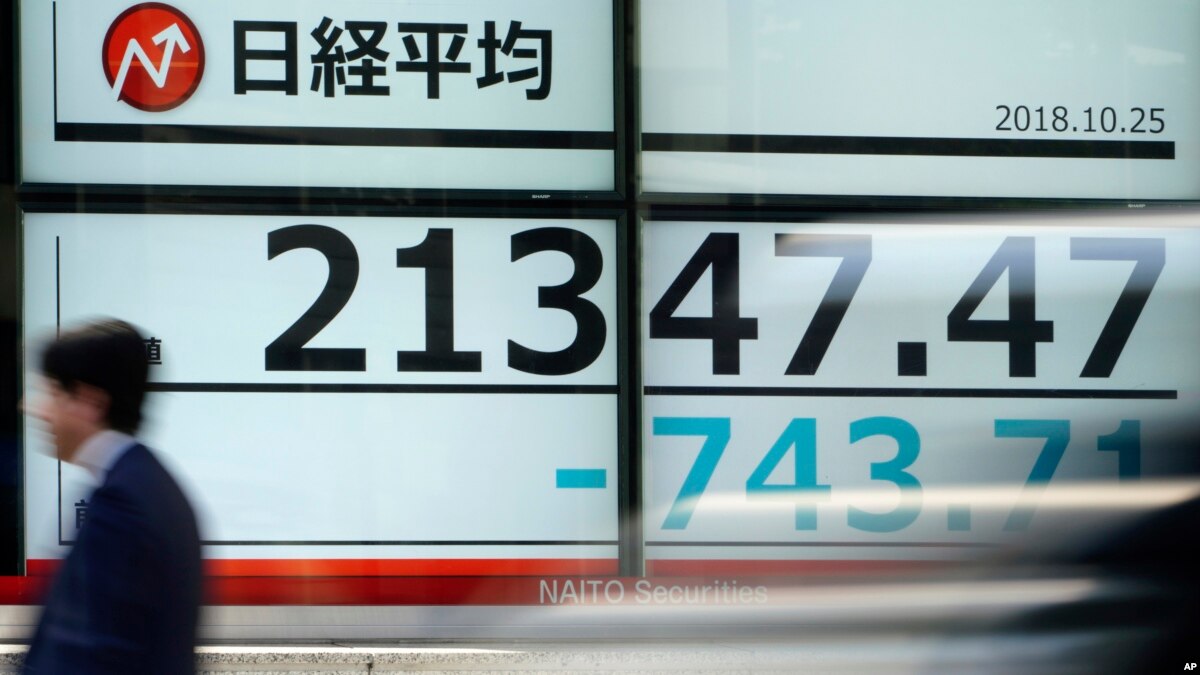
Shares fell moderately in Asia on Thursday after another torrent of selling on Wall Street sent the Dow Jones Industrial Average plummeting more than 600 points, erasing its gains for the year.
Japan’s Nikkei 225 index sank sharply on the open but leveled off, regaining some lost ground. By midmorning it was down 2.9 percent at 21,443.72. The Shanghai Composite index slipped 1.6 percent to 2,561.36 and Hong Kong’s Hang Seng index skidded 1.8 percent to 24,785.68.
Charts for the entire region were awash with the red that indicates losses, but the declines were mostly in the 2 percent to 3 percent range.
“Coming online with the overtly risk-off backdrop from U.S. markets, investors in the Asian region would be taking the cue to head for the doors,” Jingyi Pan of IG said in a commentary.
In Hong Kong, airline Cathay Pacific’s shares dropped 6.5 percent after it said it had discovered a data breach affecting 9.4 million passengers.
Nasdaq bears brunt
In New York trading overnight, the Nasdaq composite with its hefty roster of tech stocks bore the brunt of the sell-off, falling more than 10 percent below its August peak, what Wall Street calls a “correction.” It slid 4.4 percent to 7,108.40, its biggest drop since August 2011 but is still up 3 percent for the year.
The S&P 500 lost 3.1 percent to 2,656.10 and has lost about 9.4 percent from its Sept. 20 peak. The Dow tumbled 2.4 percent to 24,583.42. The Russell 2000 index of smaller-company stocks gave up 3.8 percent to 1,468.70 and is down 4.4 percent for the year.
Disappointing quarterly results and outlooks are stoking investors’ jitters over future growth in corporate profits. Bond prices rose, sending yields lower as traders sought safe-haven investments.
“Investors are on pins and needles,” said Erik Davidson, chief investment officer at Wells Fargo Private Bank. “There has definitely been a change in sentiment for investors starting with the volatility we had last week. The sentiment and the outlook seems to be turning more negative, or at the very least, less rosy.”
Effect of tax cuts fading
Investors have grown concerned in recent weeks that Corporate America’s tax cut-fueled earnings growth this year will fade in coming months amid rising inflation, uncertainty over the escalating trade conflict between the U.S. and China and the likelihood of higher interest rates. Recent signs that the housing market is slowing are fueling speculation that U.S. economic growth will start to slow next year.
Bond prices rose, sending the yield on the 10-year Treasury note down to 3.12 percent from 3.16 percent late Tuesday. The slide in bond yields came as traders sought out lower-risk assets.
Technology stocks and media and communications companies accounted for much of the selling. Banks, health care and industrial companies also took heavy losses, outweighing gains by utilities and other high-dividend stocks.
Most companies that missed earnings expectations or issued cautionary outlooks were punished.
About 24 percent of the companies in the S&P 500 had reported third-quarter results as of Wednesday. Of those, 57 percent delivered earnings and revenue results that topped Wall Street’s forecasts.
Boeing was one of the few gainers Wednesday. It rose 1.3 percent to $354.65 after the defense contractor’s latest quarterly results topped analysts’ forecasts. The company also raised its estimates for the year, citing faster orders for aircraft.
NYTimes: China Listens to Trump Cellphone Calls, Tries to Sway Policy
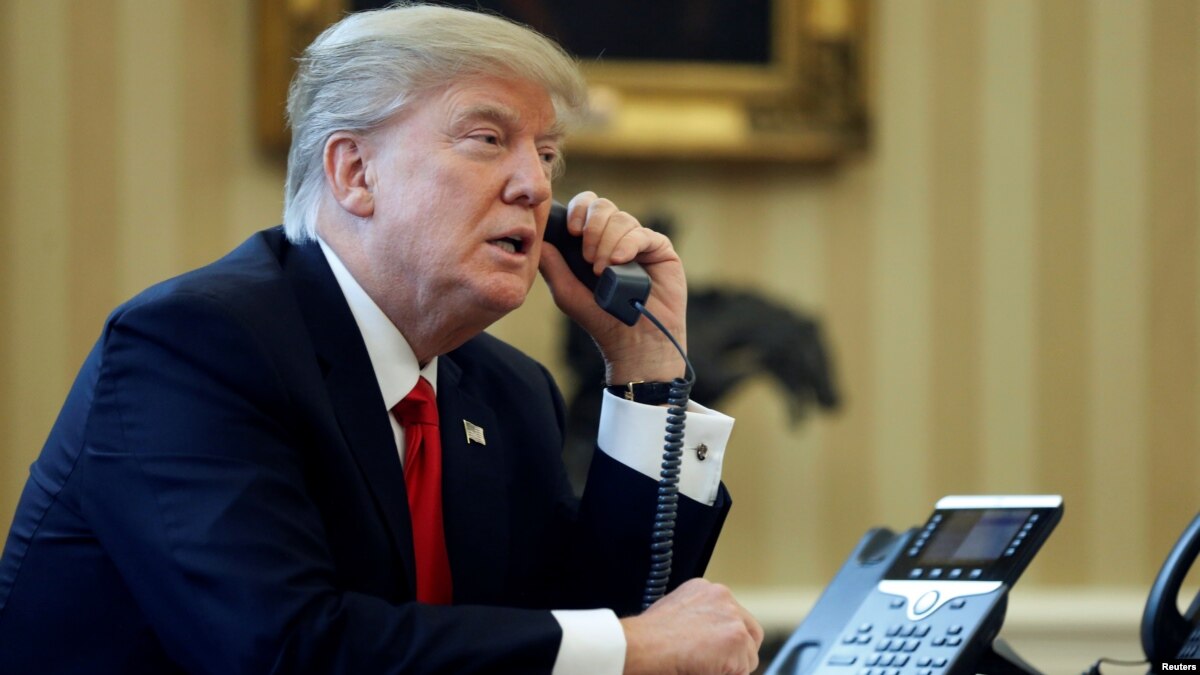
Chinese spies often eavesdrop on President Donald Trump when he uses his unsecure cellphone to gossip with old friends, and Beijing uses what it learns to try to sway U.S. policy, the New York Times reported on Wednesday, citing current and former U.S. officials.
Trump's aides have repeatedly warned him that his cellphone calls are not secure and that Russian spies routinely eavesdrop on the conversations, but they say the president still refuses to give up his cellular phones, the Times reported.
The officials said U.S. spy agencies had learned from people in foreign governments and by intercepting communications from foreign officials that China and Russia were listening to the president's calls.
The White House did not immediately respond to requests for comment about the Times report.
China has a sophisticated approach toward the intercepted calls and is seeking to use them to determine what Trump thinks, whom he listens to and how best to sway him, the Times reported, cited the officials.
Beijing particularly is trying to use what it learns to prevent the current trade war between the two countries from escalating further, according to the newspaper.
Chinese officials rely on Chinese businessmen and others with ties to Beijing to feed arguments and viewpoints to Trump’s friends in an effort to influence him, the Times reported, citing the U.S. officials.
Concerns have been raised on several occasions this year about cellphone surveillance activity in the Washington area. The Department of Homeland Security said in a letter to several senators in March that it had observed activity in Washington consistent with mobile subscriber identity catchers. An FCC commissioner said at a meeting the issue was serious and the surveillance tools could be used by criminals or foreign actors.
The Washington Post reported in June that a federal study found signs of sophisticated cellphone spying near the White House and other sensitive locations last year.
Retired US General Says War With China Likely in 15 Years

The former commander of the U.S. Army in Europe warned Wednesday that it's very likely the United States will be at war with China in 15 years.
Retired Lt. Gen. Ben Hodges said that European allies would have to do more to ensure their own defenses in face of a resurgent Russia because America will need to focus more attention on defending its interests in the Pacific.
"The United States needs a very strong European pillar. I think in 15 years — it's not inevitable — but it is a very strong likelihood that we will be at war with China,'' Hodges told a packed room at the Warsaw Security Forum, a two-day gathering of leaders and military and political experts from central Europe.
"The United States does not have the capacity to do everything it has to do in Europe and in the Pacific to deal with the Chinese threat,'' Hodges said.
Hodges was U.S. Army commander in Europe from 2014 until last year. He now is a strategic expert with the Center for European Policy Analysis, a Washington-based research institute.
Despite shifting geopolitical priorities, Hodges said the U.S. commitment to NATO remained "unshakable.'' He said he was certain the Trump administration viewed Europe's security as a key U.S. interest, even though President Donald Trump has sometimes questioned the Western military alliance's usefulness.
"So you're going to see us continue to invest here in Europe, continue to train, to practice rotational forces, as well as permanently assign forces for the eventuality that in 10 or 15 years we're going to be having to fight in the Pacific,'' Hodges said.
Hodges told The Associated Press that a recent near-miss between a U.S. Navy destroyer and a Chinese warship in the disputed South China Sea was only one of the signs pointing to an "an increasingly tense relationship and increasing competition in all the different domains.''
Others, he said, are China's "constant stealing of technology'' and how China is gaining control of infrastructure by funding projects in Africa and Europe. He said that in Europe, China owns more than 10 percent of the ports.
Cathay Pacific Flags Data Breach Affecting 9.4 Million Passengers

Cathay Pacific Airways Ltd said on Wednesday that data of about 9.4 million passengers of Cathay and its unit Hong Kong Dragon Airlines Limited had been accessed without authorization.
Cathay said 860,000 passport numbers, about 245,000 Hong Kong identity card numbers, 403 expired credit card numbers and 27 credit card numbers with no card verification value (CVV) were accessed in the breach.
"We are very sorry for any concern this data security event may cause our passengers," Cathay Pacific Chief Executive Rupert Hogg said in a statement.
"We acted immediately to contain the event, commence a thorough investigation with the assistance of a leading cybersecurity firm, and to further strengthen our IT security measures.”
Hogg said no passwords were compromised in the breach and the company was contacting affected passengers to give them information on how to protect themselves.
Cathay Pacific was not immediately available for additional comment outside normal business hours.
The company said it initially discovered suspicious activity on its network in March 2018 and investigations in early May confirmed that certain personal data had been accessed.
News of Cathay's passenger data breach comes weeks after British Airways revealed that credit card details of hundreds of thousands of its customers were stolen over a two-week period. Cathay in a statement said accessed data includes names of passengers, their nationalities, dates of birth, telephone numbers, email and physical addresses, passport numbers, identity card numbers and historical travel information.
It added that the Hong Kong Police had been notified about the breach and that there is no evidence that any personal information has been misused.
Indonesian Village Bans 3 HIV+ Orphans From School

Authorities in a North Sumatra village have banned three HIV+ orphans from elementary school, and threatened the children, who are from outside the area, with expulsion from Nainggolan due to community fears of transmission.
The children, a boy and two girls, aged 7 to 11 years, were infected by transmission from their mothers, Berlina Sibagariang, executive secretary of the Batak Protestant Christian Huria AIDS Committee (HKBP), told VOA Indonesia. The orphaned children attended preschool and the Nainggolan State Primary School in North Sumatra for one day before they were expelled, in response to outcry from students and parents who learned of their HIV status, according to Sibagariang.
“We want those three children to enjoy their rights to go to school and get an education,” Sibagariang said, adding “the community hopes that the children will no longer attend local schools. They are afraid that their children will be infected with HIV.”
The children were removed from classes on October 22, and Sibagariang said the local community set an October 25 deadline for the children to leave the village.
While an estimated five million people are infected with HIV in Asia, the rate of new infections has slowed in the last decade. But not in Indonesia, which now has an estimated 660,000 people living with HIV, according to the UNAIDS. According to the U.N. agency, Indonesia had 48,000 new HIV infections and 38,000 AIDS-related deaths in 2016, an increase in AIDS-related deaths of 68 percent from 2010. As of 2016, an estimated 3,200 Indonesian children were infected with HIV due to mother-to-child transmission.
There is, Indonesians activists note, ignorance of HIV and its transmission.
“Many people in our rural area still don’t really know what HIV/AIDS is, or the regulations covering it,” Puta Elvina, commissioner of Indonesia’s National Commission to Protect Children (KPAI) told VOA. In Nainggolan, “the school should educate the [Parent Teachers Association (PTA)] about HIV/AIDS so they know they don’t have to worry about it. [The PTA} should communicate to them how people become infected, how HIV is transmitted, etc. And the school has an obligation to those HIV-kids, to protect and support them. Actually not only the school, but also the local people (to support the kids) and the local government.”
Human immunodeficiency virus (HIV) can only be transmitted from an infected person to another through direct contact of bodily fluids such as blood (including menstrual blood), semen, vaginal secretions and breast milk, according to the San Francisco AIDS Foundation, a leading U.S. source of information on HIV and AIDS. “Blood contains the highest concentration of the virus, followed by semen, followed by vaginal fluids, followed by breast milk. … It is possible for an HIV-infected mother to transmit HIV before or during birth or through breast milk. Breast milk contains HIV, and while small amounts of breast milk do not pose significant threat of infection to adults, it is a risk for infants.”
The shunning behavior in Nainggolan is not unique. “HIV stigma is effectively universal, but its form varies from one country to another, and the specific groups targeted for AIDS stigma vary considerably,” says the University of California, Davis. “Whatever its form, HIV stigma inflicts suffering on people and interferes with attempts to fight the AIDS epidemic.”
Tiqoh, who has only one name, is an activist at Yayasan Pelita Ilmu (YPI), a non-governmental organization with a long track record on HIV/AIDS education in Indonesia, understands the difficulty of talking about HIV “with the local people, but perhaps the school could also involve doctors from the local clinic. Those parents and local people who refuse to take care these kids, or don’t want them to study in the same class as their children, they’re taking these actions because they don’t know much about HIV/AIDS. They’re just worry that their kids might be infected.”
HKBP is continuing talks with local government officials and the community as the Thursday deadline approaches in an attempt to stop expulsion of the children from Nainggolan.
“They said that we should remove those children because the local government hasn’t issued a permit to send children to those schools or even stay in that village,” said Sibagariang. “In fact, the home in that village – where we sent the children – is our home, an HKBP home. They have right to stay there. It’s our home!”
Local leader, Samosir Regent Rapidin Simbolon, told VOA that the HKBP hospital in Nainggolan once “accommodated the elderly, but now they accommodate children who are exposed to HIV.”
So far, the talks have resulted in a suggestion to homeschool the children but the HKBP AIDS Committee rejected this option, saying it would isolate the children and paper over what they see as the real issue: misunderstanding of HIV-AIDS.
The committee criticized another local leader, Samosir Deputy Regent, Juang Sinaga, who called for the children to be expelled from the village, and sent to the jungle.
Rapidin told VOA "I am responsible,” he said. “I will not allow the public to directly shun them. … We will protect (the children) so no one will take advantage of the situation. Be assured we are protecting them, we will even involve the police, if necessary. I guarantee that the children are being monitored.”
But the regent said that there were different opinions about the orphans–parents don’t want their children in classes with the HIV+ orphans, “while HKBP who said that [separating these children] is discriminating against HIV-people.”
“The HKBP does not want to understand us,” Rapidin said. “The three children who are positive are not from our region. They come from outside. We are actually very tolerant, it's OK here. But they (HKBP) are insistent. The HKBP cannot insist like that. Nainggolan residents also have rights."
Anugerah Andriansyah reported from North Sumatra, Indonesia and Eva Mazrieva reported from Washington, D.C.
Read More Indonesian Village Bans 3 HIV+ Orphans From School : https://ift.tt/2JfkpxlSearch
Featured Post
Rubin Museum, Haven for Asian Art, to Close After 20 Years - The New York Times
It is the first major art museum in New York to close within recent memory. The museum had financial challenges and has faced accusations o...

Postingan Populer
-
asianpostmedia.blogspot.com Ex-CEO John Clendening slams his former employer for allegedly rewriting history to fend off attack from activi...
-
Merdeka.com - Tahun lalu, organisasi teroris ISIS yang menguasai sebagian wilayah di Suriah dan Irak berhasil digempur. ISIS kehilangan wi...
-
asianpostmedia.blogspot.com With restaurant closures and stay-at-home guidelines, you are likely cooking at home a lot more than you are us...